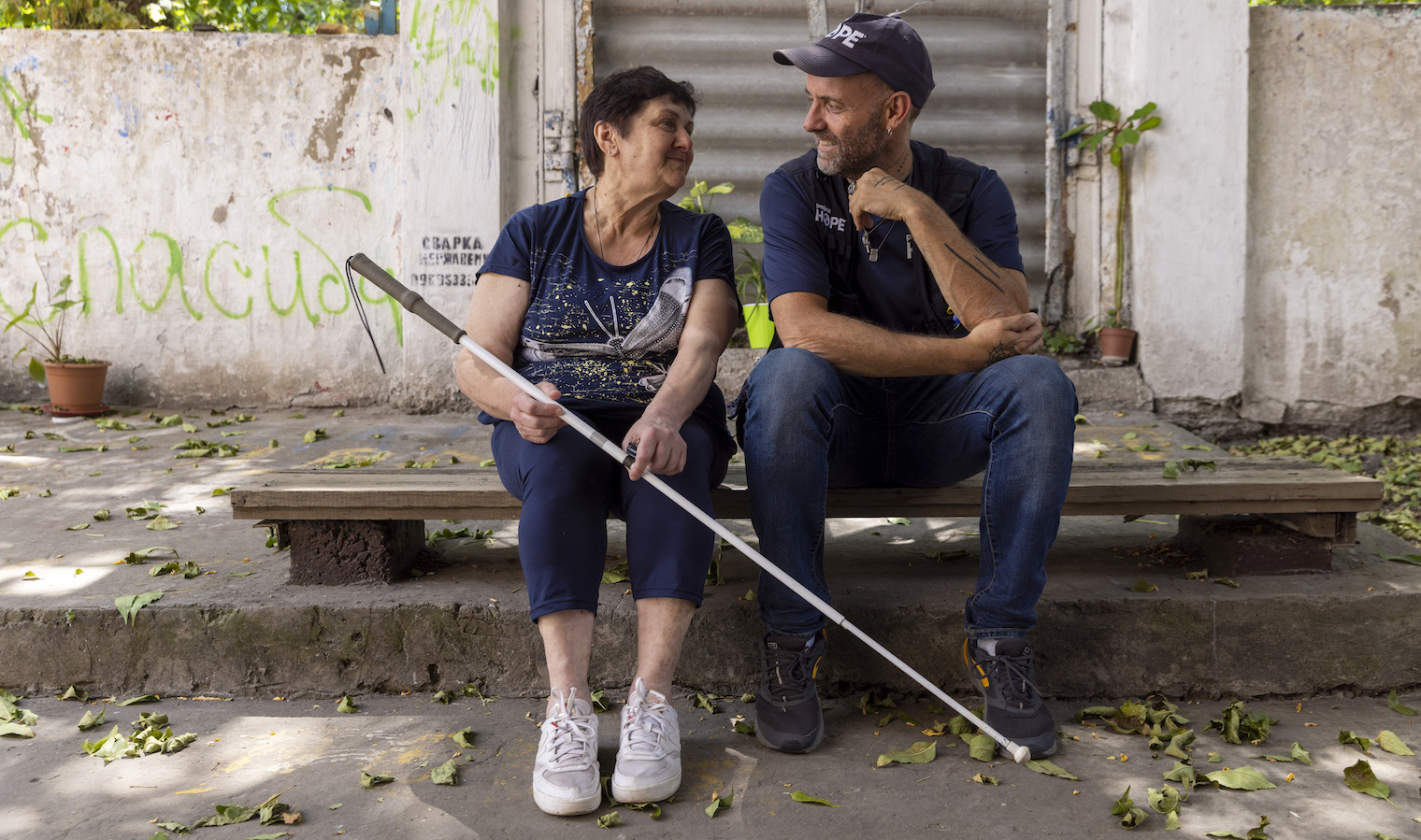
Crisis in Ukraine: How To Help
Project HOPE is on the ground responding to the health and humanitarian needs of communities affected by Russia's violent attacks on Ukraine. Learn more about this ongoing crisis and how you can help.
 The crisis in Ukraine has not ended. Thousands of civilians have been killed and millions of Ukrainians are displaced by the conflict. Project HOPE has reached more than 1 million people across Ukraine, Poland, and Moldova and continues to support health workers and provide primary health, mental health, and protection services to Ukrainians in need.
The crisis in Ukraine has not ended. Thousands of civilians have been killed and millions of Ukrainians are displaced by the conflict. Project HOPE has reached more than 1 million people across Ukraine, Poland, and Moldova and continues to support health workers and provide primary health, mental health, and protection services to Ukrainians in need.
What You Need To Know
>> Read our latest Situation Report on the Ukraine crisis
>> Read our two-year Ukraine Impact Report
>> See our latest updates from the ground
>> How you can help
>> What are the greatest needs in Ukraine?
>> Our work in Eastern Europe
>> Project HOPE In The News
Two years into Russia’s full-scale invasion of Ukraine, thousands of children and civilians have been killed and 10 million people are displaced. The entire population of Ukraine is living through unimaginable atrocities and enduring multiple humanitarian crises.
More than 1,200 health facilities have been attacked since the conflict began, and the invasion has devastated local health systems in communities near the front lines. Project HOPE is working hand in hand with local health workers, government officials, and other partners to meet the health and humanitarian needs of Ukraine’s resilient communities.
Your support saves lives. Help us reach people around the world today
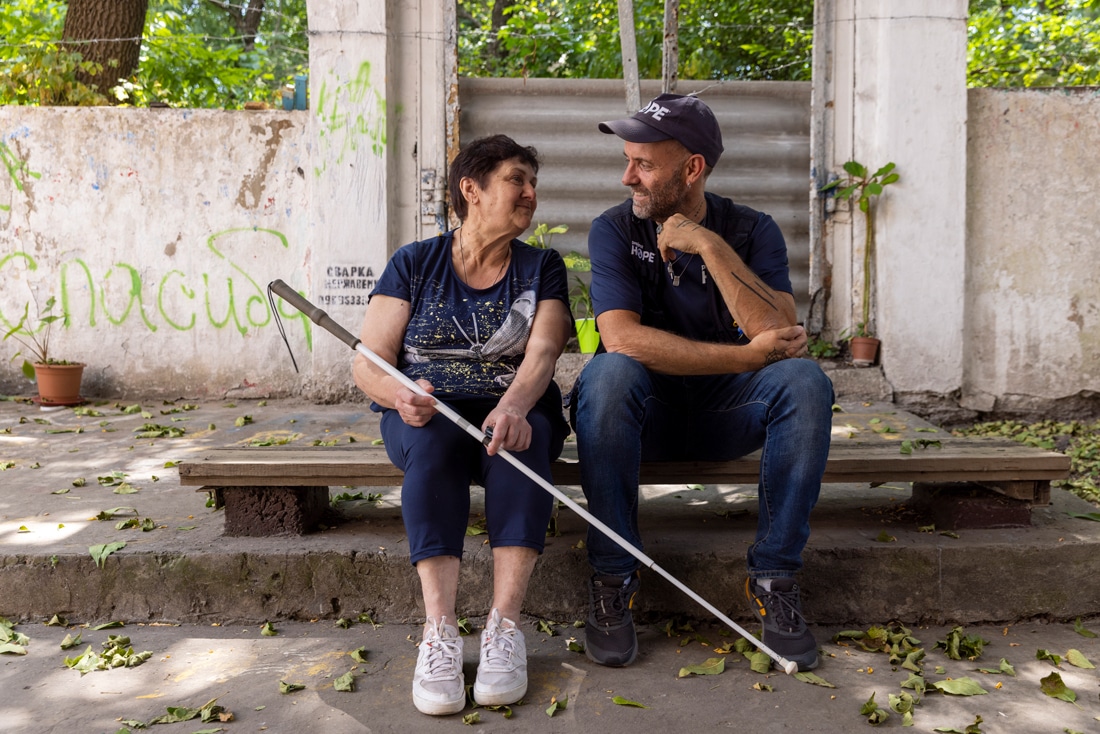

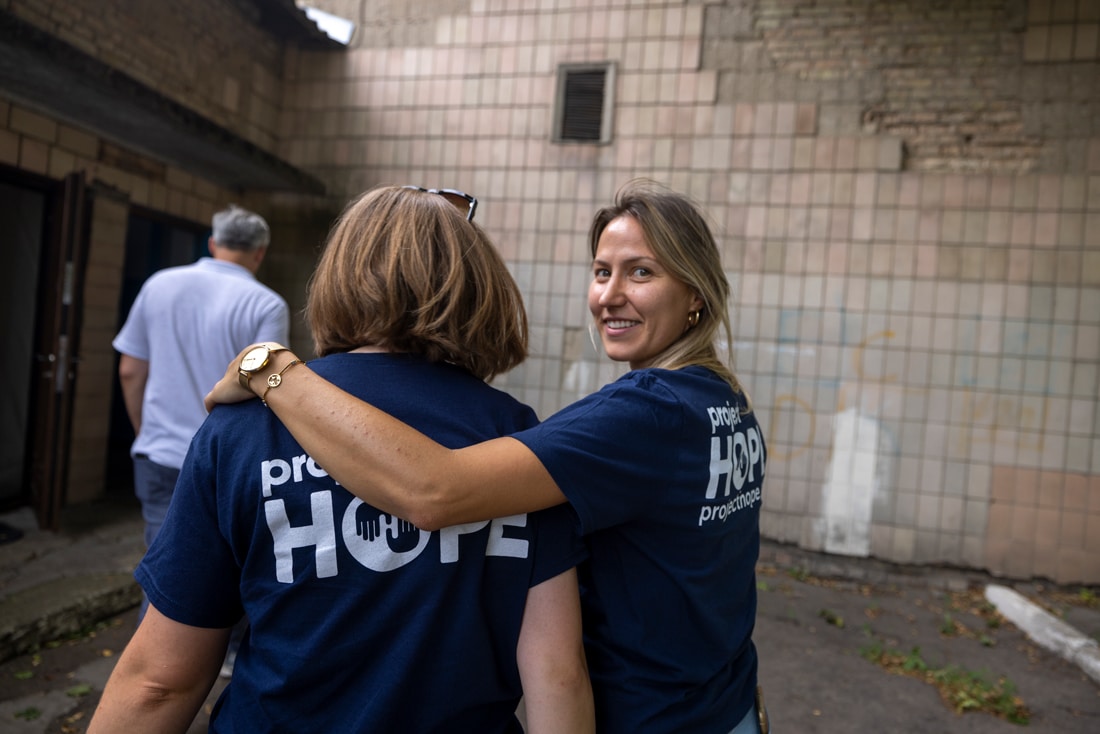
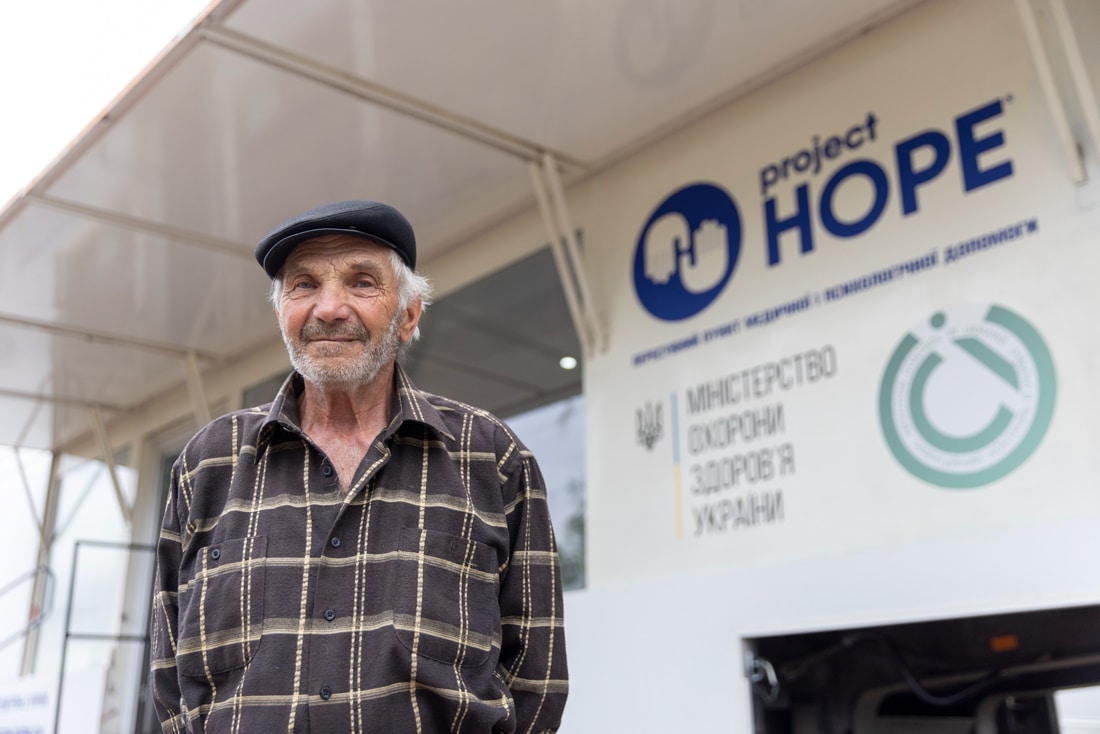
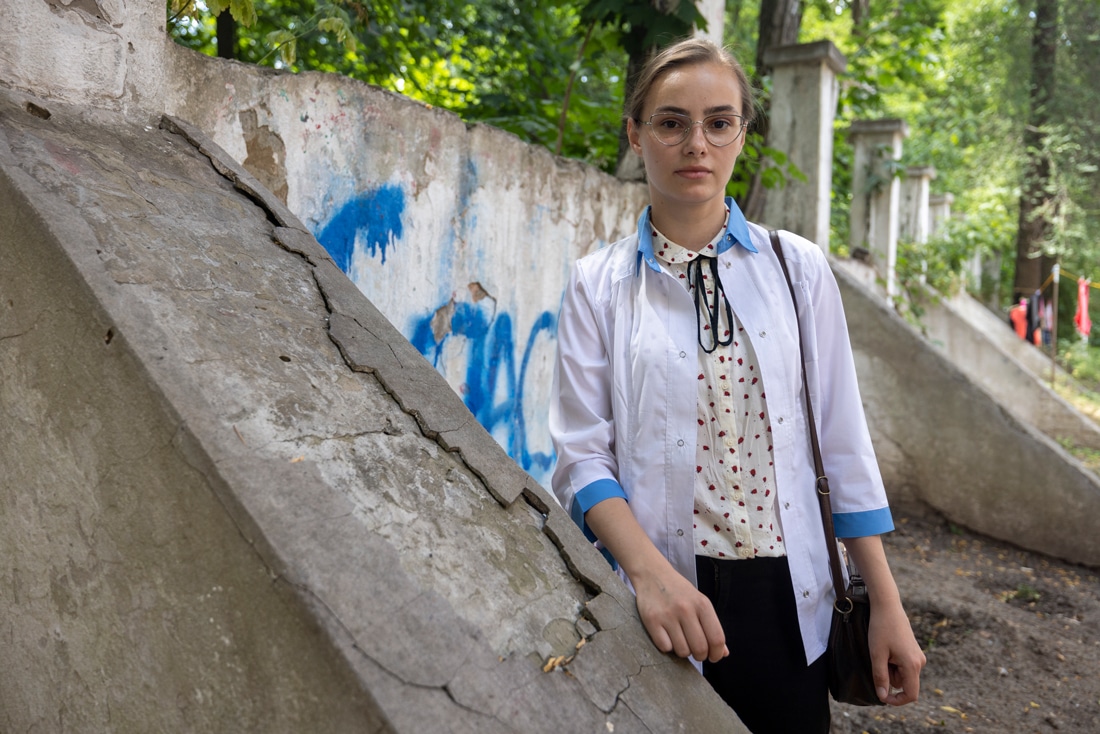
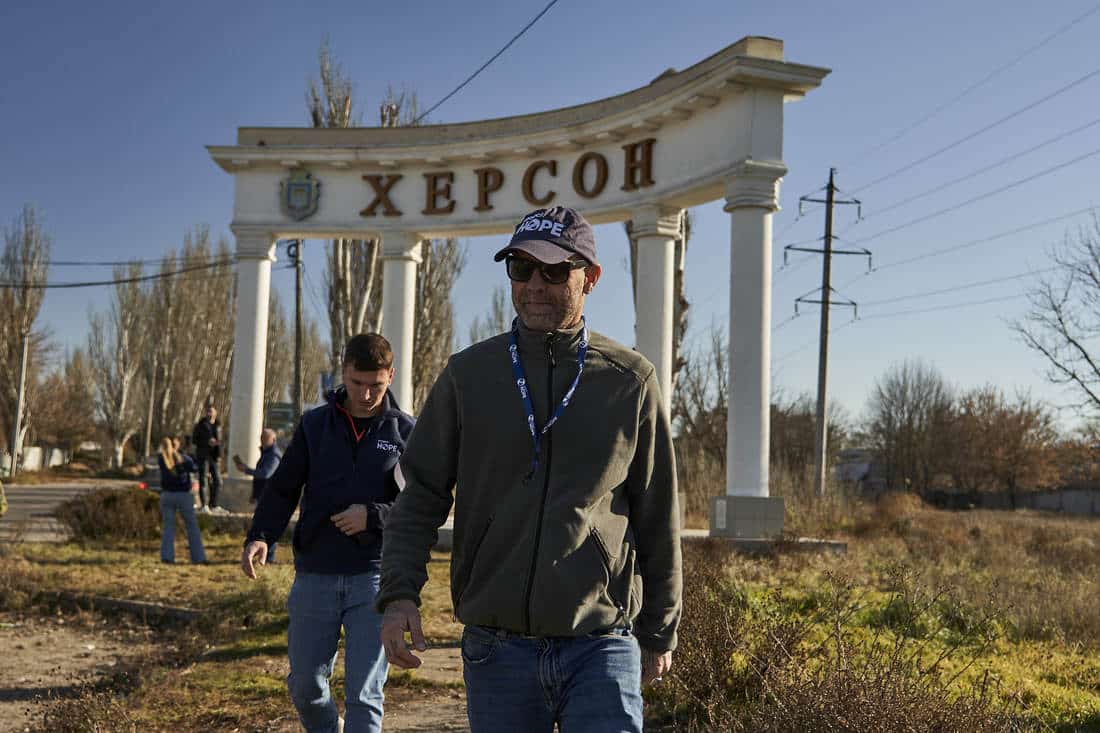
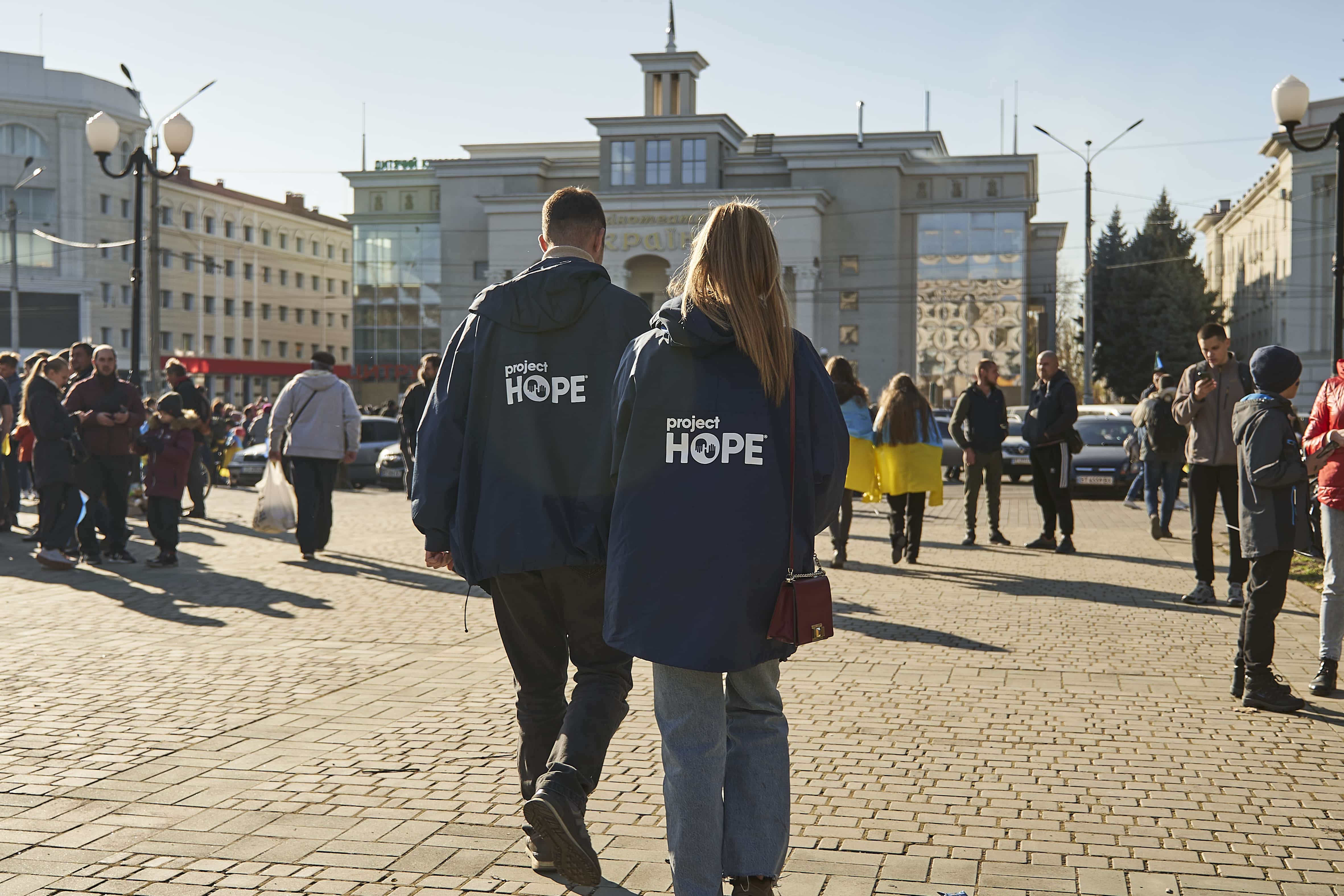
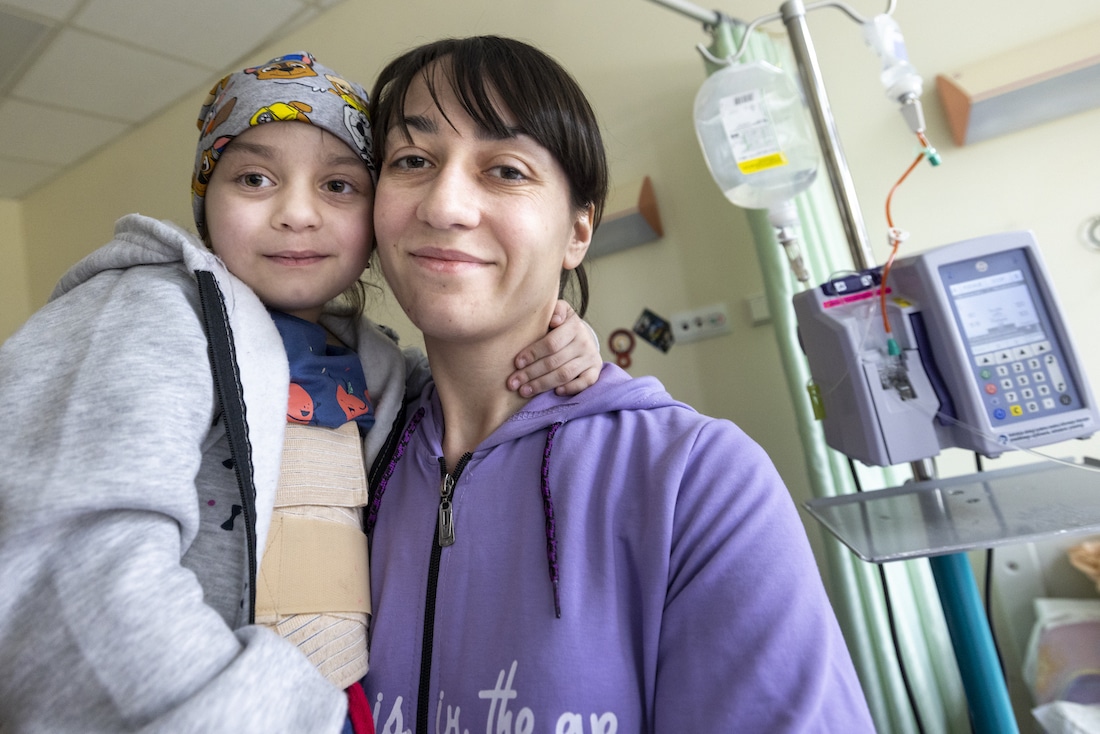
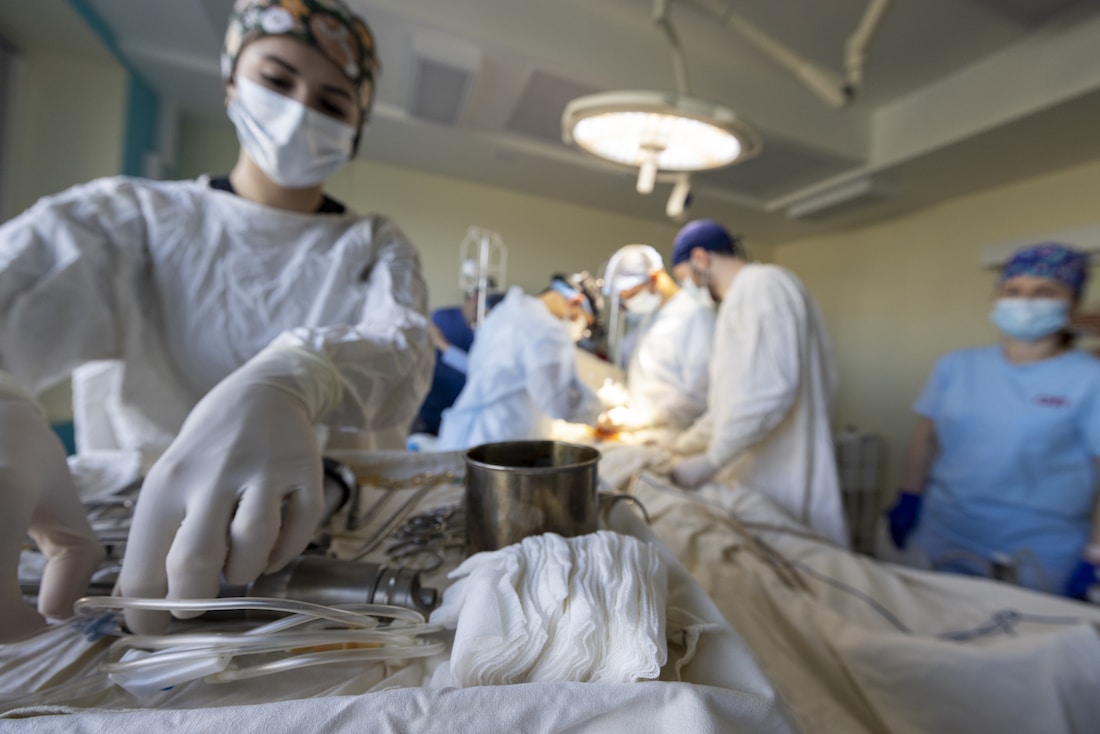
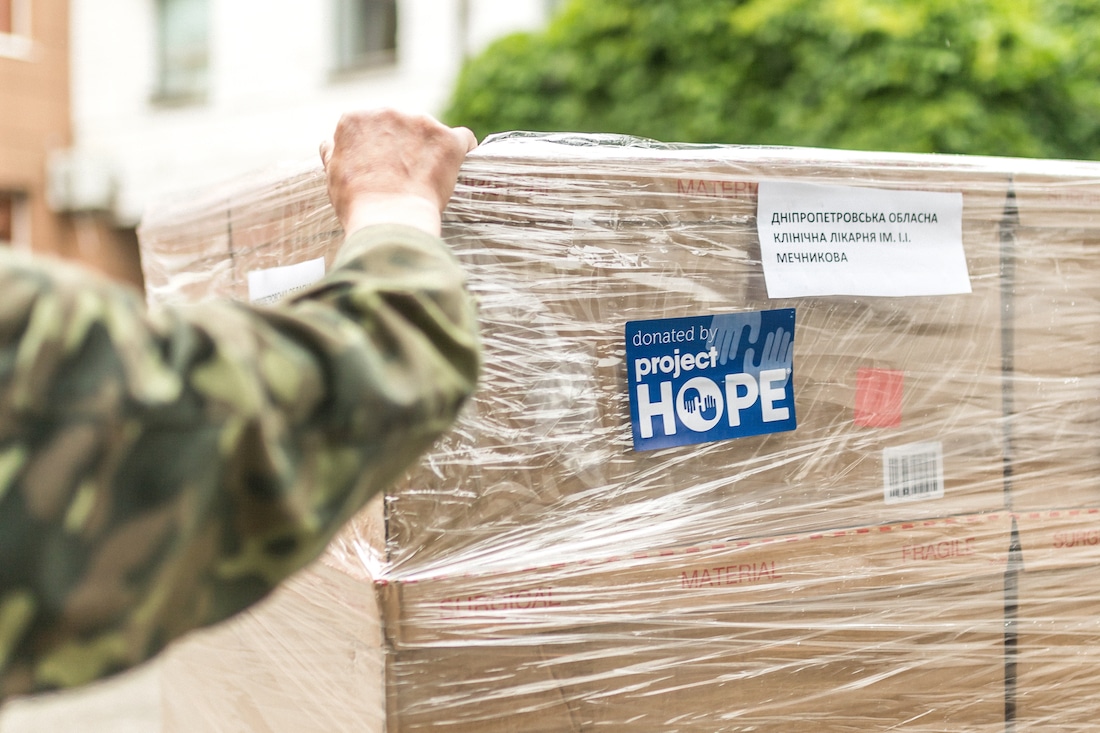
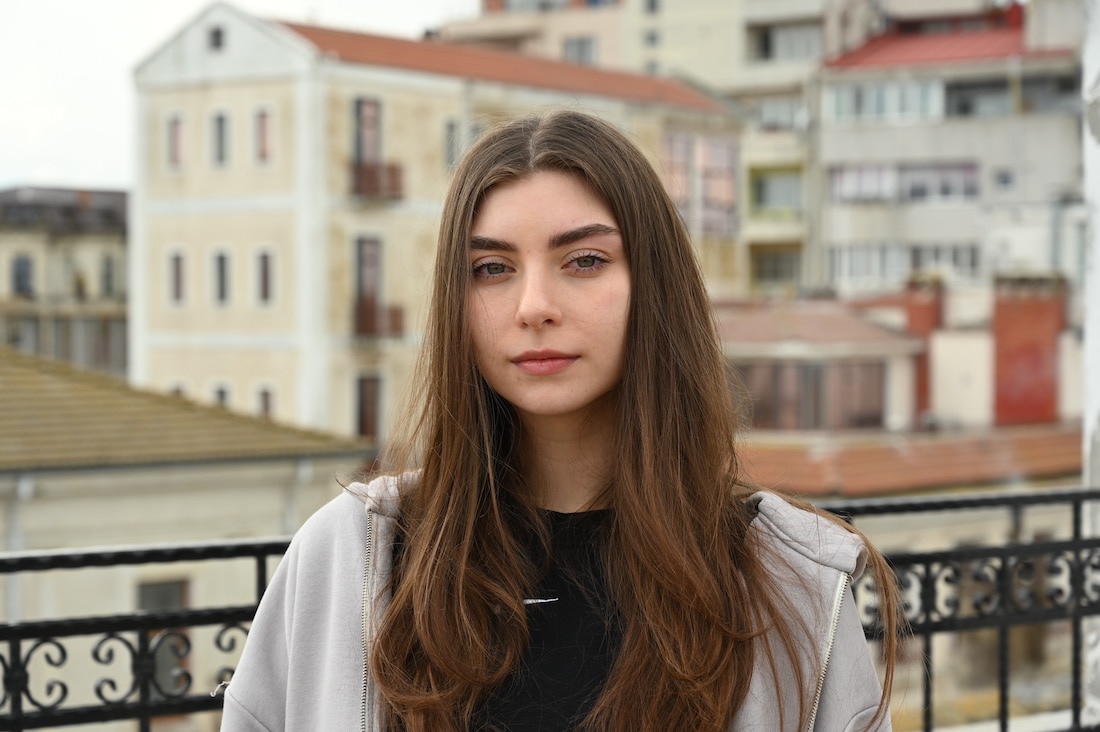
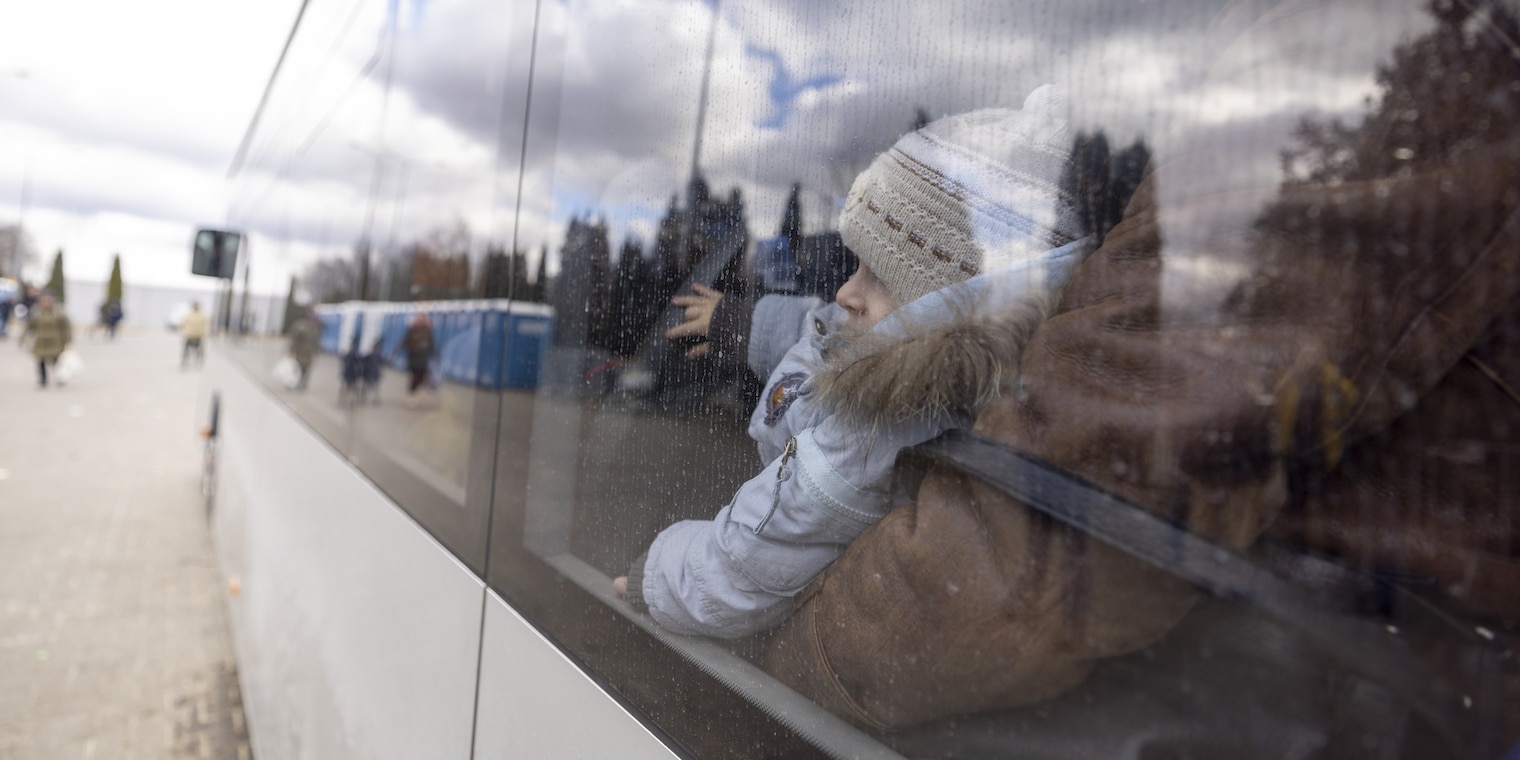
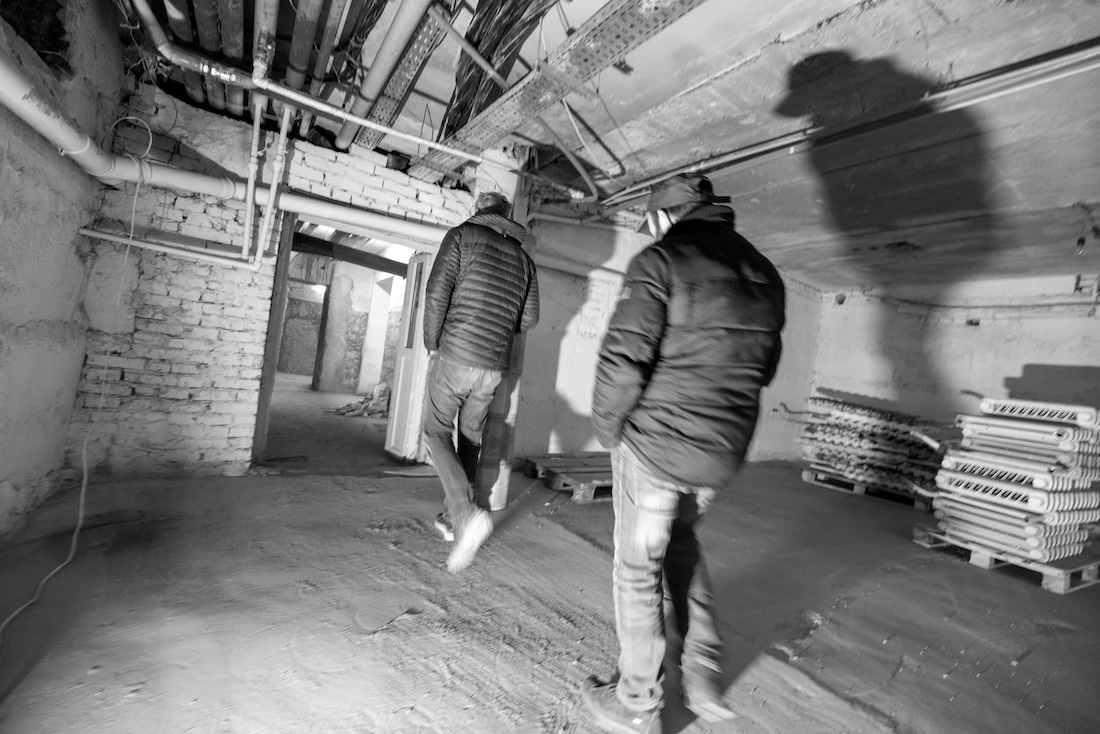
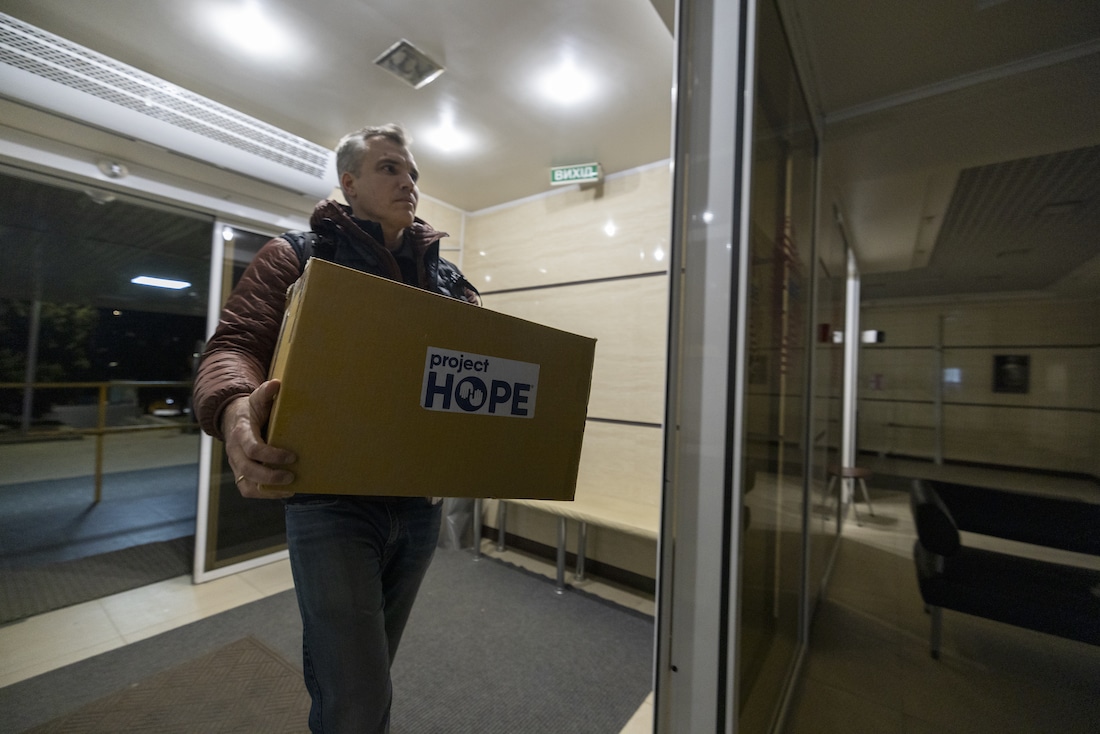
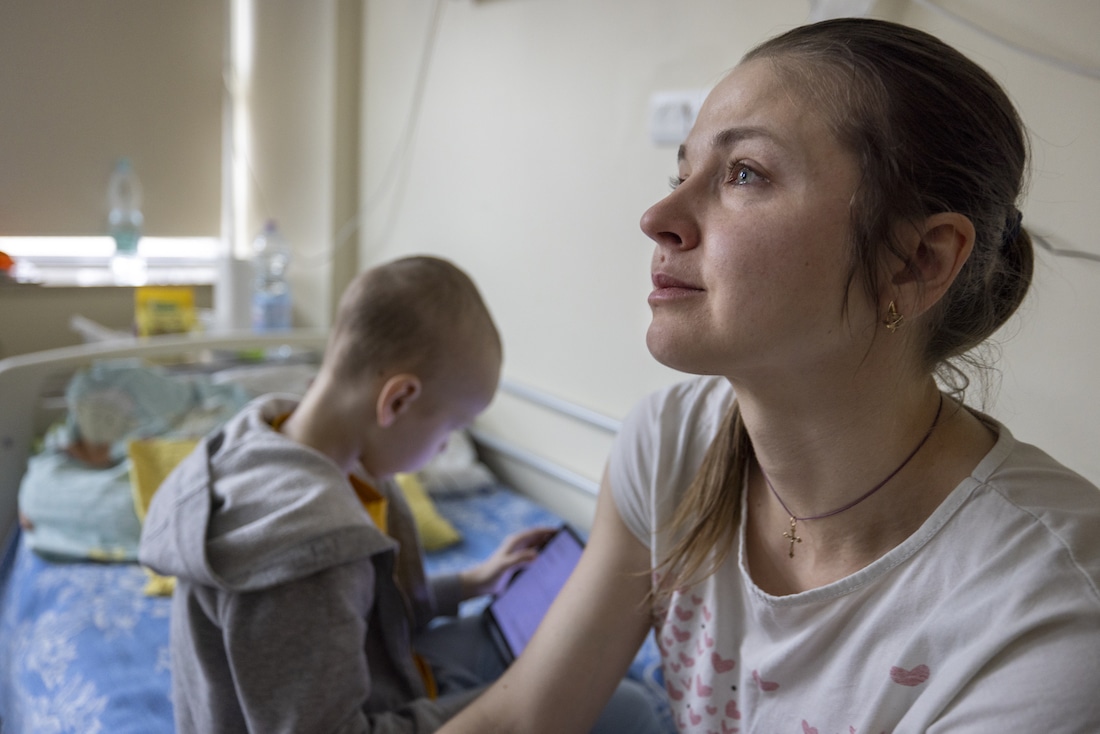
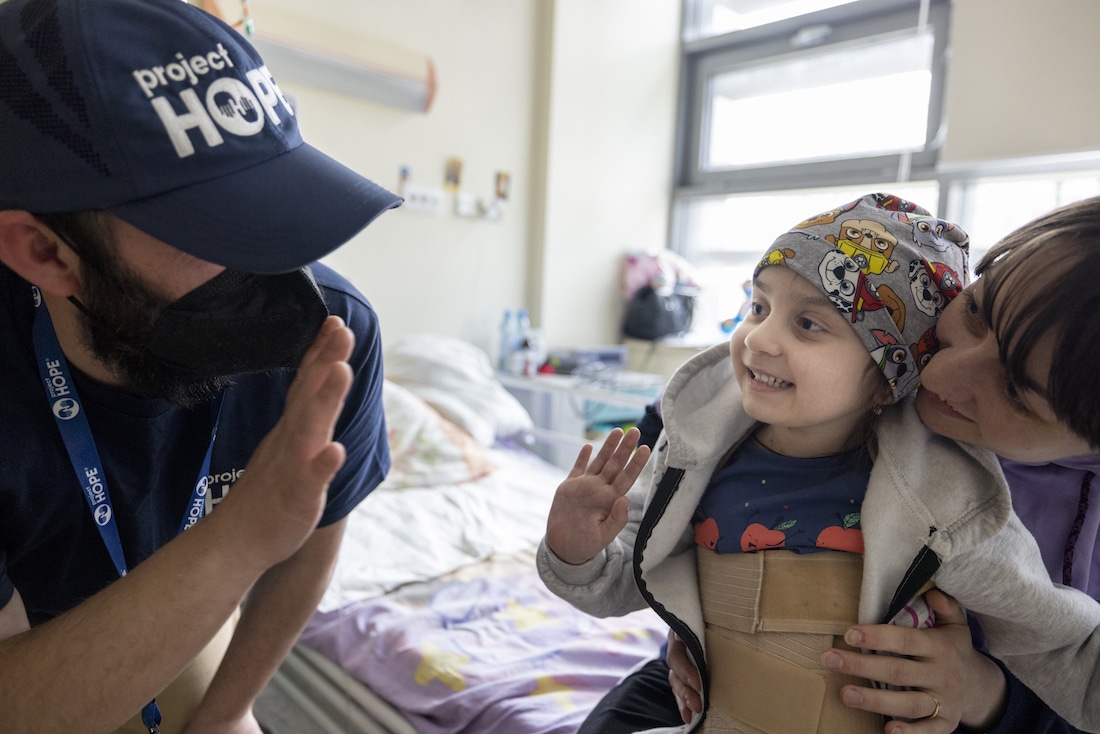
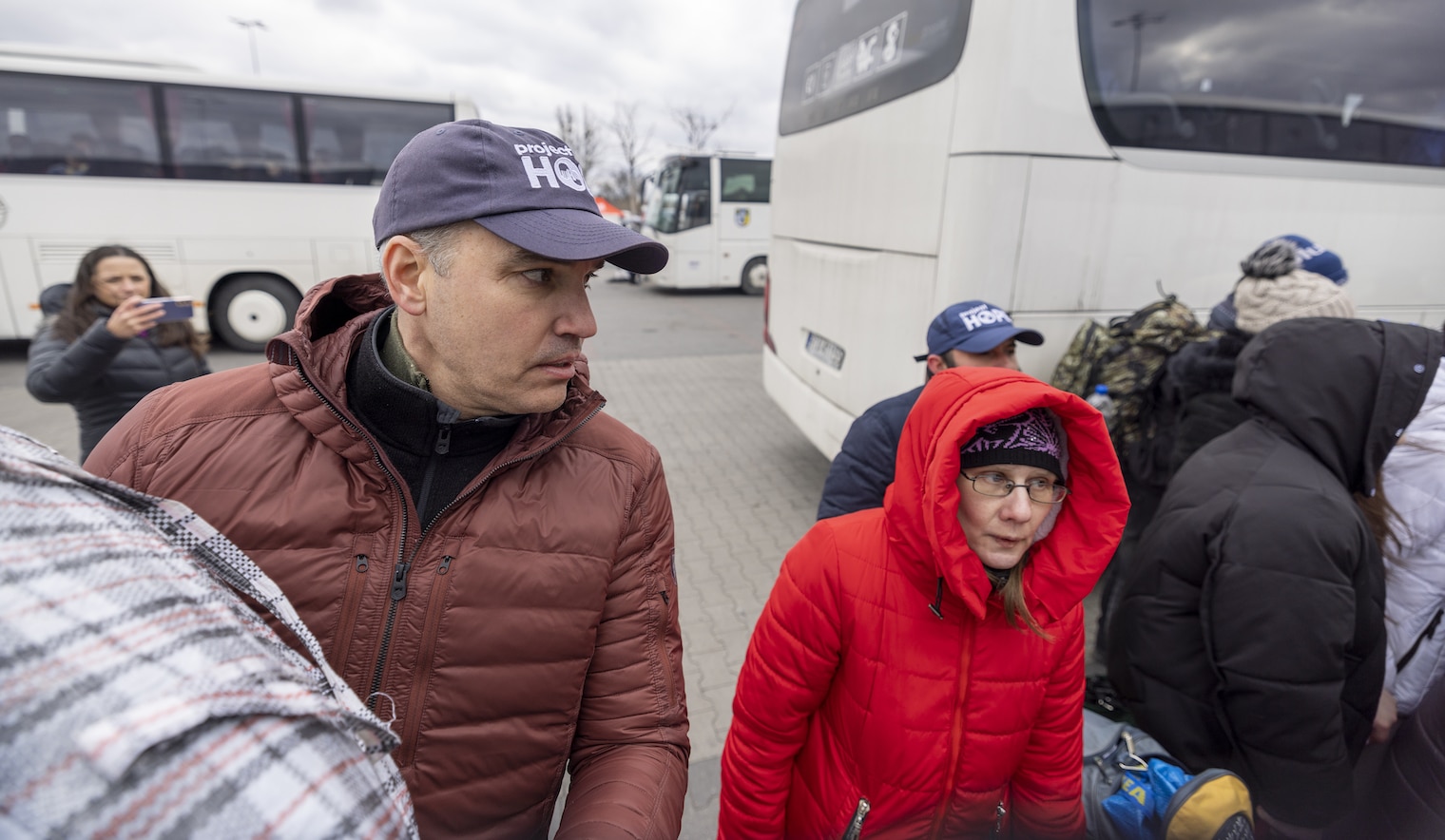

















Project HOPE has seven regional offices in Ukraine and is supporting health facilities in all 24 oblasts. Our team is focused on strengthening the country’s health system by training local health workers and providing services for primary health; mental health and psychosocial support (MHPSS); protection; and water, sanitation, and hygiene (WASH).
The conflict has also had a profound impact on neighboring countries that have taken in large numbers of refugees. In Poland, Moldova, and Romania, refugees face gaps in essential health services like primary health, mental health, and protection. Project HOPE is reaching thousands of refugees across the region so they can access the health support they need.
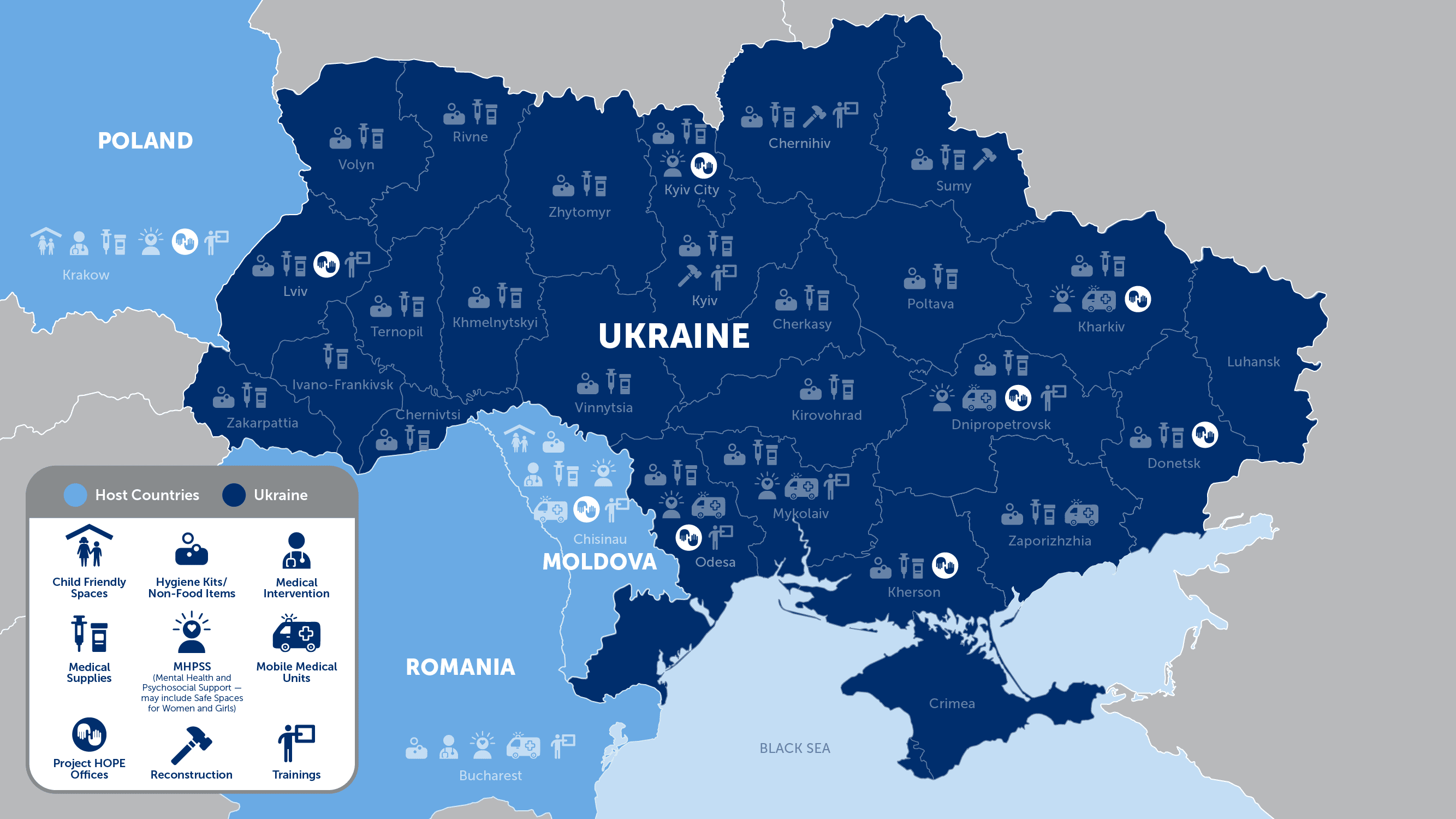
Highlights From Our 2023 Impact Report
- Operated 36 mobile medical units that treated more than 195,000 people in Ukraine.
- Provided mental health support to more than 71,000 people in Ukraine.
- Distributed 95,000 hygiene kits and non-food items across Ukraine.
- Provided nine fully equipped ambulances to communities near the front lines in Kherson, Kharkiv, and Dnipro, which transported 6,343 patients.
- Trained more than 3,400 health workers, delivered 201 generators, distributed clean drinking water to more than 24,000 people, and completed reconstruction projects on six buildings across Ukraine.
- In Poland, Moldova, and Romania, our team connected Ukrainian refugees to primary health care services, equipped health facilities with medical supplies, and provided mental health and psychosocial support that reached more than 22,000 people.
What are the greatest needs in Ukraine?
Russian attacks have caused extensive damage to infrastructure — from schools and hospitals to gas and electricity lines — which has limited access to essential goods and services. Project HOPE has completed multiple reconstruction projects across Ukraine and continues coordinate with local governments and partners to support communities impacted by the destruction of essential infrastructure.
Our team has identified immense needs in primary health, mental health and psychosocial support (MHPSS), gender-based violence protection, as well as water, sanitation, and hygiene (WASH), all of which Project HOPE is actively addressing through our programs in Ukraine.
Most Ukrainian refugees in Poland, Moldova, and Romania are women and children, though older adults and Ukrainians with disabilities have also made the difficult decision to leave their home country. The massive displacement of people has caused significant gaps in essential services for both Ukrainian refugees and host communities in Poland, Moldova, and Romania. Project HOPE is working with local partners to provide those affected with primary health, mental health and psychosocial support (MHPSS), and protection services.
Your support saves lives. Help us reach people around the world today.
Our Work in Eastern Europe
Ukraine
Project HOPE began working in Ukraine in 2002 with a life-skills program focused on drug use prevention, HIV prevention, and education for children in primary schools. In 2007, Project HOPE began a five-year, USAID-funded HIV/AIDS Service Capacity project in Ukraine, which focused on the mobilization of communities most at risk of contracting and transmitting the disease.
From 2012-2017, Project HOPE helped improve the health of Ukrainians by partnering with the Government of Ukraine to decrease the incidence and strain of tuberculosis (TB) on Ukraine’s health system and improve outcomes for people living with TB.
Poland
Project HOPE has supported Poland’s health system for nearly 50 years. In 1974, Project HOPE was invited to assist the Polish-American Children’s Hospital (PACH) — now University Children’s Hospital of Krakow — to create education programs for health professionals serving the hospital. By 1975, Project HOPE had completed a medical research facility adjacent to the hospital, and then in 1988 a 240-bed rehabilitation center was built.
We continue to work with University Children’s Hospital in Krakow to meet the needs of Ukrainian refugees, including the opening of a mental health and psychosocial support center for refugees and two refugee child playrooms. Through our local partners, Project HOPE has helped more than 7,500 children from Ukrainian refugee families access medical services, provided mental health services to more than 8,292 Ukrainian refugees and host community members, and supported more than 800 Ukrainian refugees with disabilities with physiotherapy, rehabilitation, and psychological support services.
Moldova
To support the needs of Ukrainian refugees and Moldovan families, Project HOPE partnered with The Moldova Project to establish nine child playrooms in Moldova — which gave Project HOPE’s local partners the space necessary to provide 7,662 Ukrainian refugees and Moldovan families, including 4,581 children, with MHPSS services, food, hygiene kits, and medical vouchers. Project HOPE provided a grant of $260,000 to The Moldova Project (TMP) to establish these safe spaces and provide child refugees, their caregivers, and children from Moldovan families in vulnerable positions with education and social integration services.
Project HOPE provided a grant worth $140,165 to the local organization Regina Pacis to set up a Holistic Assistance Center for Ukrainian refugees and families in vulnerable positions in Moldova. The Center has provided 2,159 people with medical and psychological assistance, referrals to health services, information on how to access education services, asylum procedure assistance, and/or employment aid.
Project HOPE also awarded a grant worth $117,929 to Casa Marioarei (The Association Against Domestic Violence), which has since provided its GBV prevention, job and livelihood training, and social integration services to 2,462 Ukrainian refugees and host community members, including 809 children.
In 2022, Project HOPE delivered 86,500 insulin pens and 45 Interagency Emergency Health Kits to the Ministry of Health in Moldova. Project HOPE also delivered 500 sleeping pads to refugee shelters and 2,160 hygiene kits to the Ministry of Labor and Social Protection for distribution to shelters, women and child centers, and other facilities. Project HOPE also previously supported an Emergency Medical Team (EMT) from SAMU, which provided emergency and ongoing medical services and medications to around 1,800 refugees in the first four months of the war.
Romania
In Romania, Project HOPE partnered with five local organizations to provide relief to Ukrainian refugees seeking safety, including mental health support. Our team on the ground has distributed hygiene kits that include toothpaste, toothbrushes, diapers, and more for refugees.
Project HOPE also provided a local organization, La Rascruce Association, with a grant worth $129,839 to support Ukrainian refugees crossing into Romania through the Sculeni border point. La Rascruce staff and volunteers provided Ukrainian refugees with vital information, registration support, and basic needs such as hot meals, water, hygiene items, transportation, and accommodation. Our partner also provided refugees with MHPSS services, Romanian classes, and vouchers that can be used to buy essential supplies at their Integration and Relocation Center in Iasi, Romania. From January to June 2023, La Rascruce supported a total of 9,562 Ukrainian refugees.
![]()
How you can help Ukraine
The war in Ukraine has displaced millions of people and led to a humanitarian catastrophe that impacts women, children, families, and entire communities made vulnerable by this crisis. If you want to help, here’s how you can get involved:1. Make a lifesaving gift to support our work now and for the future. Project HOPE stands ready to assist the Ukrainian people with health and humanitarian aid, both in Ukraine and in surrounding countries. Our emergency response team and European partners are sending critically needed medicines, medical supplies, and mental health support as the crisis unfolds. Please join our efforts by making a lifesaving gift to our Ukraine response today so we can continue supporting the needs of those affected by this crisis.
2. Fundraise for Ukraine by streaming on Tiltify to raise money for Project HOPE. If you’re a content creator, you can start a charity stream on Tiltify to Stream for HOPE and raise funds for Project HOPE’s mission. Tag us on social @projectHOPEorg to let us know about your charity stream so we can thank you!
3. Interested in an employee giving campaign for Ukraine? Please contact us – we are happy to help.
4. Stay up-to-date on this story and our lifesaving work around the world by following us on Facebook, Instagram, LinkedIn, and Twitter, and help spread the word about our response.
Updates
Project HOPE continues to expand its work across Ukraine, Poland, and Moldova and is committing to standing alongside Ukraine’s people during this crisis. Our response has reached more than 1.2 million people across a spectrum of health support that includes mobile medical clinics, health worker trainings, building reconstruction, safe spaces for children, and more.
To learn more about Project HOPE’s 2023 impact, read our full 2023 Ukraine impact report here.
Our team in Ukraine continues to focus on providing critical support to communities near the front lines, where individuals are often without access to primary health, WASH, and MHPSS services. This includes:
- 28 mobile medical units, which have treated more than 93,000 patients
- Mental health services for more than 58,000 Ukrainians
- More than 340,000 bottles of clean drinking water in Kherson and Mykolaiv oblasts
- The delivery and installment of 233 generators to 127 facilities in Ukraine
- The construction of nine playrooms for Ukrainian refugee children in Moldova
- Providing trainings to more than 4,000 health workers in 87 health facilities
- Partnerships with 15 local organizations across Ukraine, Moldova, Poland, and Romania to support health and humanitarian needs
Project HOPE has now 16 mobile medical units that have provided 120,517 medical consultations for 65,143 patients across Ukraine, including 5,450 mental health consultations. Project HOPE has now provided humanitarian aid in 23 oblasts and delivered medicines, medical supplies, insulin, hygiene kits, emergency health kits, surgical kits, and other essential equipment to 305 facilities (including 10 centers for internally displaced people) nationwide. Additionally, Project HOPE has delivered and installed 185 generators to 114 facilities in Ukraine.
Project HOPE continues to deliver emergency drinking water to Kherson and Mykolaiv oblasts. A total of 383,030 liters of clean drinking water have been distributed to 12,211 citizens. Project HOPE is also renovating 12 facilities in Kyiv, Chernihiv, and Sumy oblasts. Eight projects have been completed, two are currently under construction, and two are in pre-construction.
After learning that sources of clean drinking water dried up in the small, rural town of Novovorontsovka in Kherson Oblast, Project HOPE immediately mobilized a team to assess and respond to the situation. Due to repeated shelling from Russian forces on the other side of the Dnipro River, the 3,000 remaining residents of Novovorontsovka were relying on contaminated boreholes and river water.
Within a few days, Project HOPE’s Ukraine team was able to dispatch two large trucks carrying 6,672 six-liter bottles of clean drinking water. Now, as the community explores long-term solutions, Project HOPE is looking to install temporary water storage units capable of holding up to 10,000 liters of clean drinking water.
Project HOPE has also delivered an additional 80,000 liters of clean water to the villages of Chornobaivka and Antonivka, also in Kherson Oblast.
In total, Project HOPE has supported 160 health facilities in 23 oblasts in Ukraine with medicines, medical supplies, insulin, needles, hygiene kits, emergency health kits, surgical kits, and children’s kits. Our 11 mobile medical units (MMUs) to date have provided primary health care in the Dnipro, Zaporizhzhia, Kharkiv, Chernihiv, Odesa, and Mykolaiv areas. The MMUs have already provided 40,893 medical consultations for 28,898 patients in Zaporizhzhia, Dnipro, Chernihiv, Odesa, Mykolaiv, and Kharkiv Oblasts.










Project HOPE recently donated 400 hospital beds, including mattresses, bed linen sets, blankets, pillows, and bed covers, to the Ministry of Health of Moldova worth $81,200. The hospital beds will be distributed to three psychiatric hospitals in Chisinau, Balti, and Orhei as per the Ministry of Health request as follows:
- 250 beds to the Clinical Psychiatry Hospital in Chisinau municipality,
- 100 beds to the Balti Psychiatry Hospital in Balti,
- 50 beds to the Orhei Psychiatry Hospital in Orhei
All three psychiatric hospitals sent letters of gratitude to Project HOPE staff expressing their deep gratitude for the desperately needed assistance.
“Neither the lack of electricity, nor the lack of heating or this conflict will stop us from working hard to provide strong and high-quality health services to Ukrainian refugees and to the people in Moldova,” stated the Moldovan Minister of Health, Ala Nemerenco.
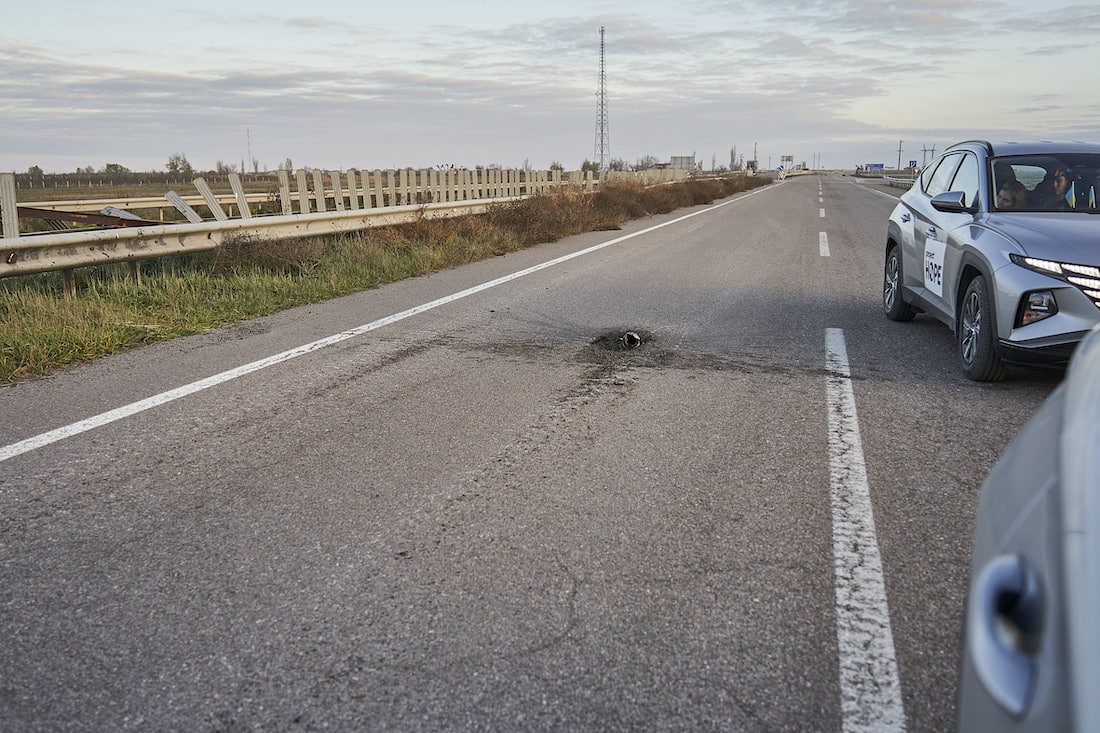
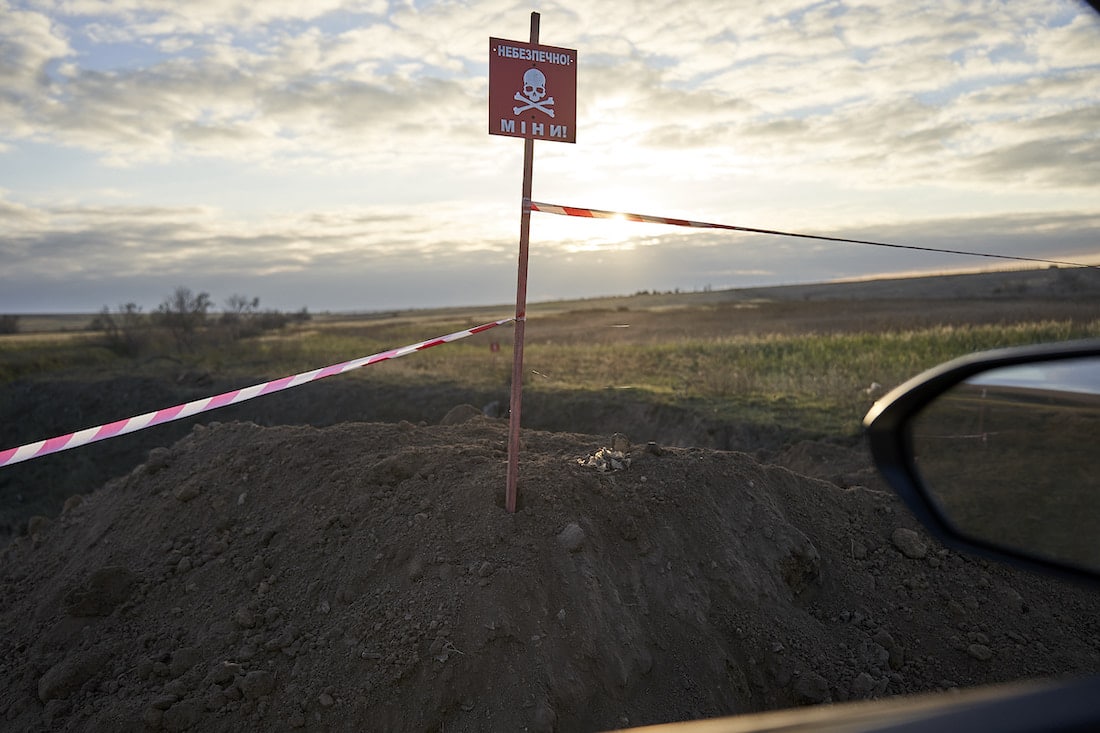

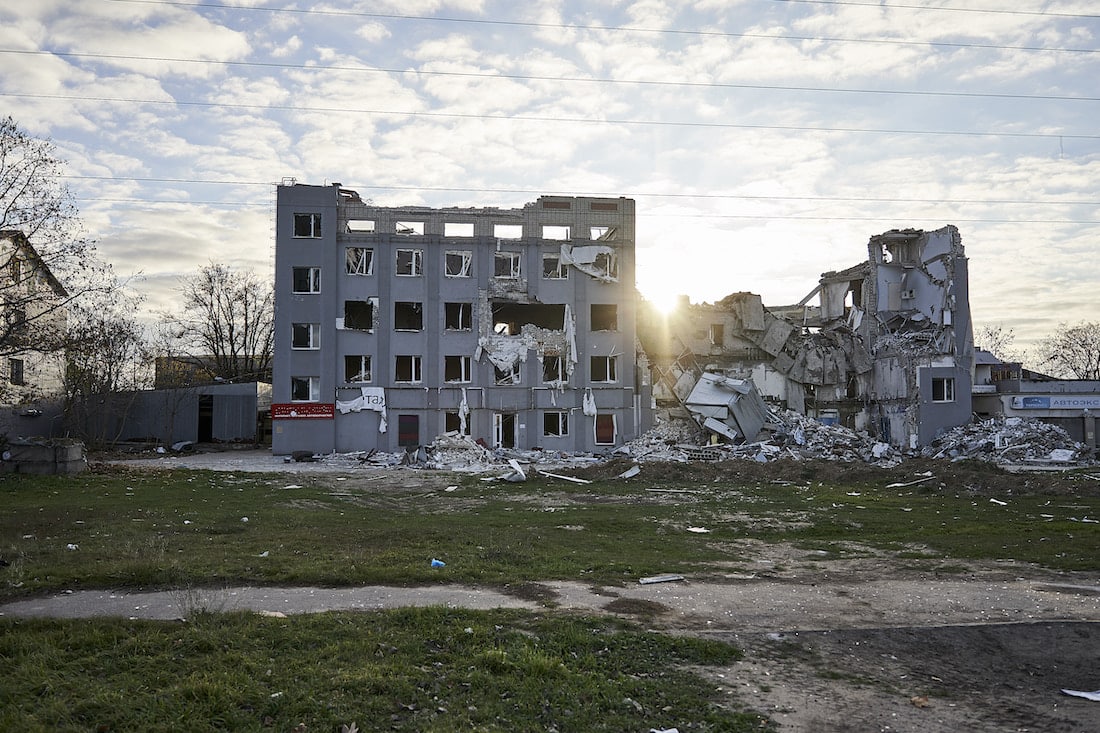
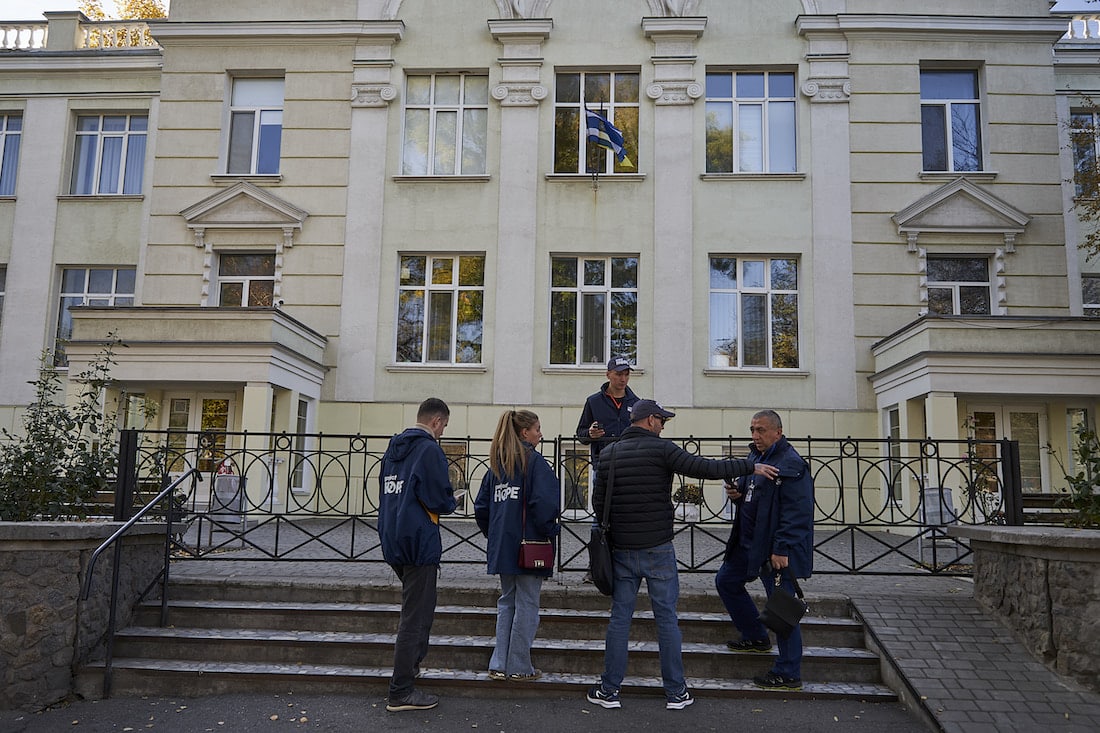

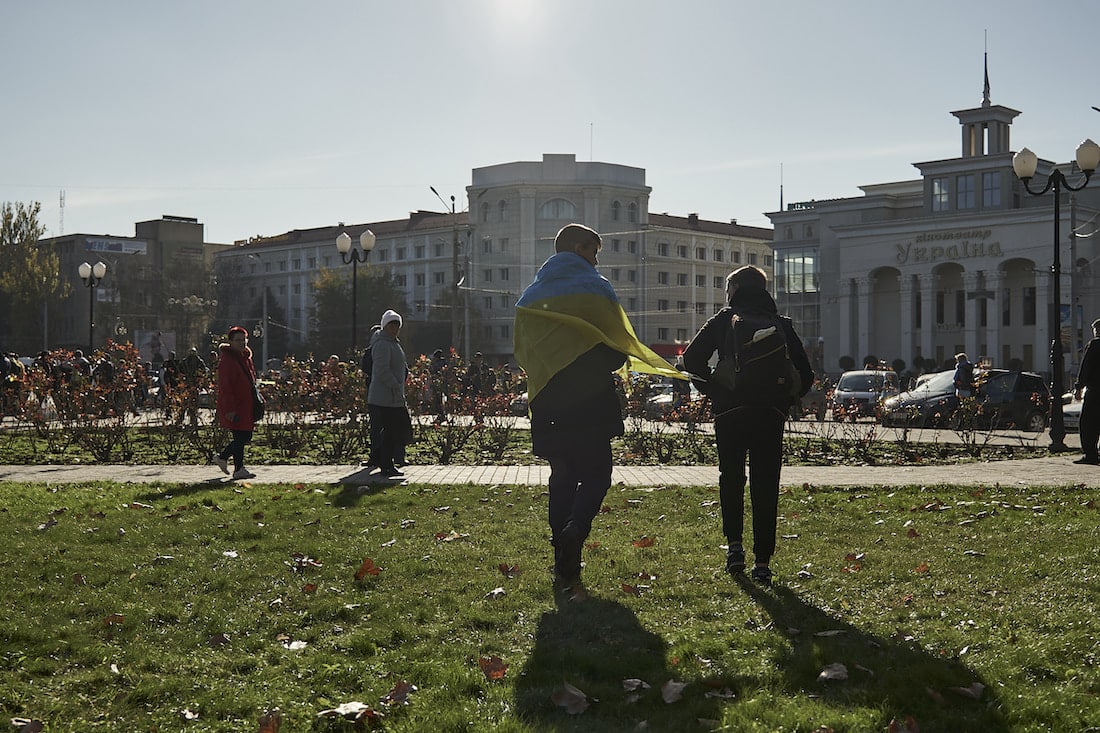
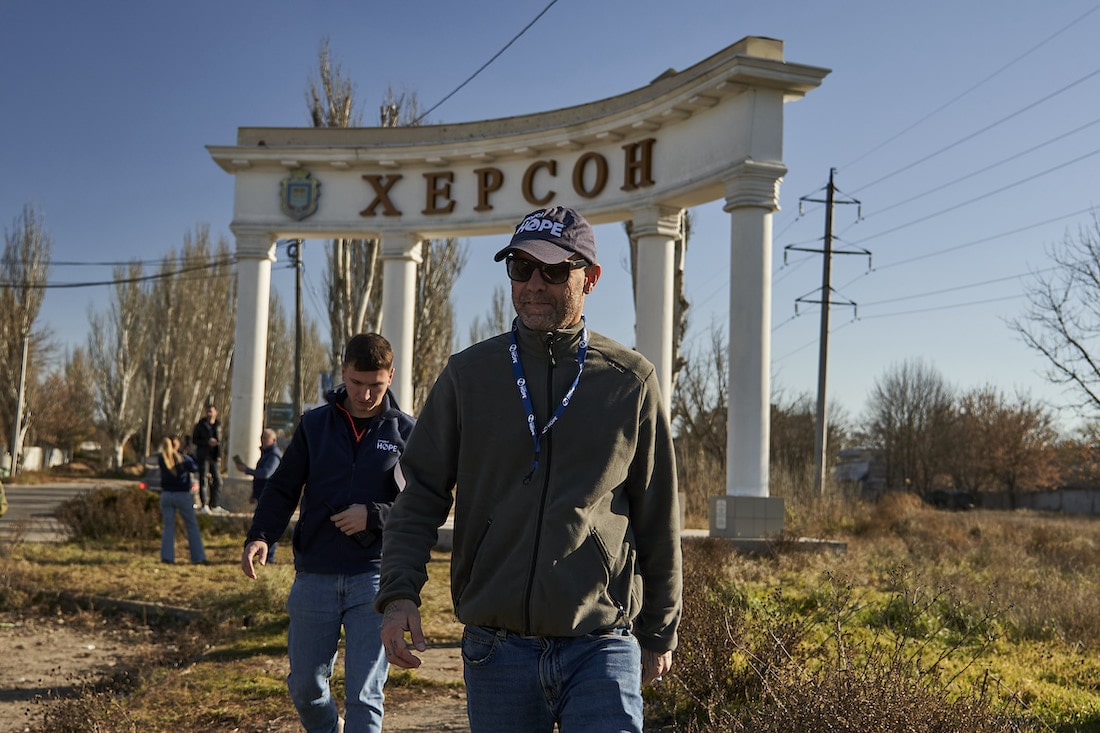
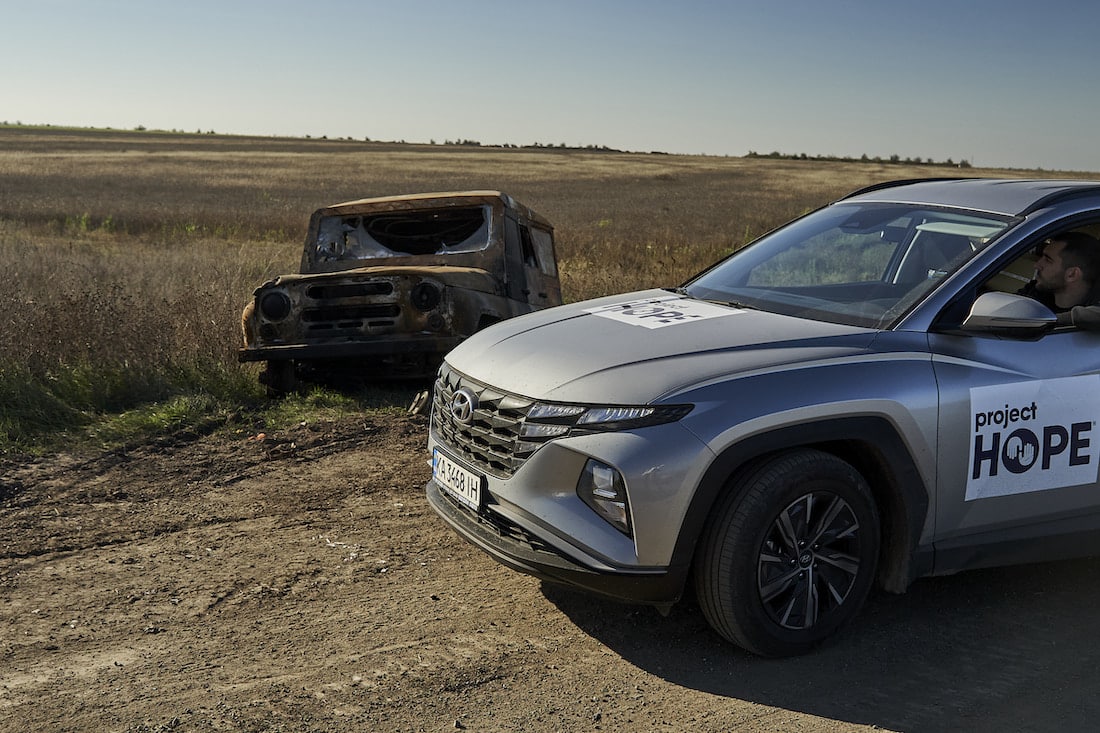
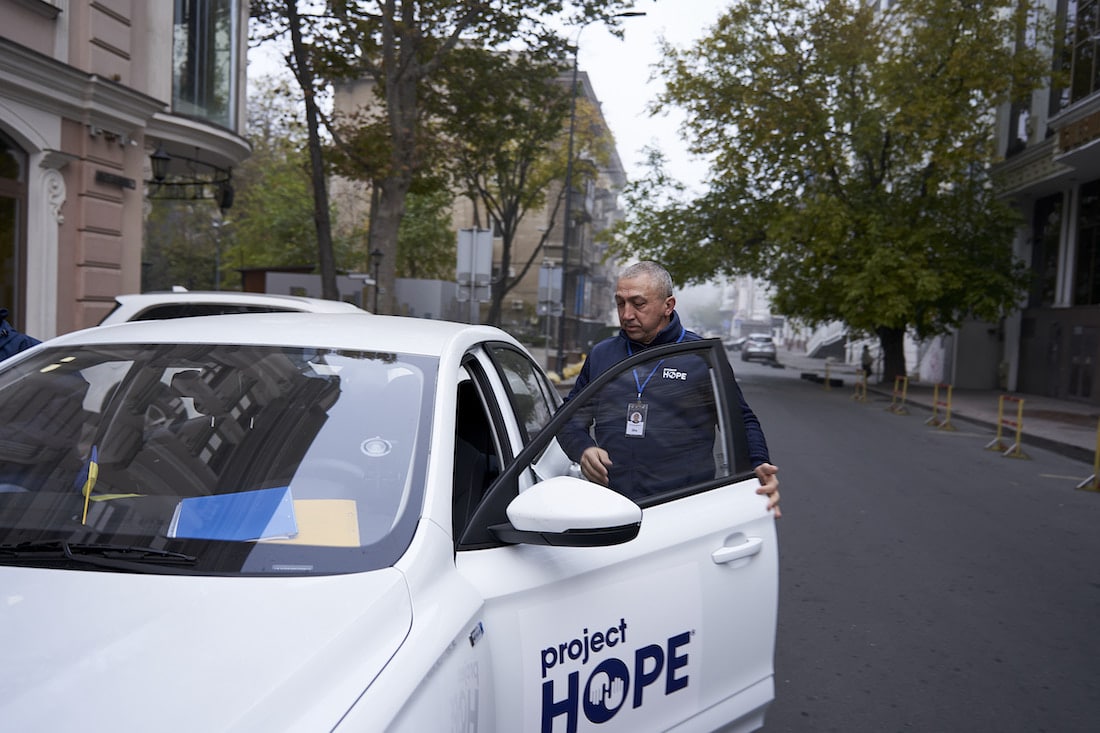










Project HOPE has completed an initial needs assessment after the liberation of Kherson to identify the greatest health needs in the city. Project HOPE was among the first humanitarian organizations to arrive in Kherson and also delivered an initial procurement of more than 700 hygiene kits to those in need.
“The road from Odesa to Kherson is marked by villages that have been destroyed and roads severely damaged,” said Artem Murach, Project HOPE’s Ukraine Information Officer who deployed as part of the team. “Ruined bridges, burned vehicles lying upside down, missiles stuck in the ground and mines are just a part of what Russians left. Some small villages on the way seem to be completely wiped out. Local people are reported to have been hiding in their cellars for months, without seeing what’s happening.”
Medical needs are high in the city following months of occupation. One former doctor at a hospital Project HOPE assessed told our team that they expect a higher influx of patients from rural areas, where the situation was described as “catastrophic.”
Other challenges that were highlighted included a lack of fuel, water, and electricity, which could especially impact the large portion of the elderly population that has chronic diseases. There are also serious staff shortages and only 10 ambulances left in the city. There are no vehicles for transporting the patients who need urgent care and need to be evacuated.
Based on these challenges, the primary needs to come include diesel fuel, clean water, vaccinations, medicines, specialists, vehicles, and mobile medical clinics.
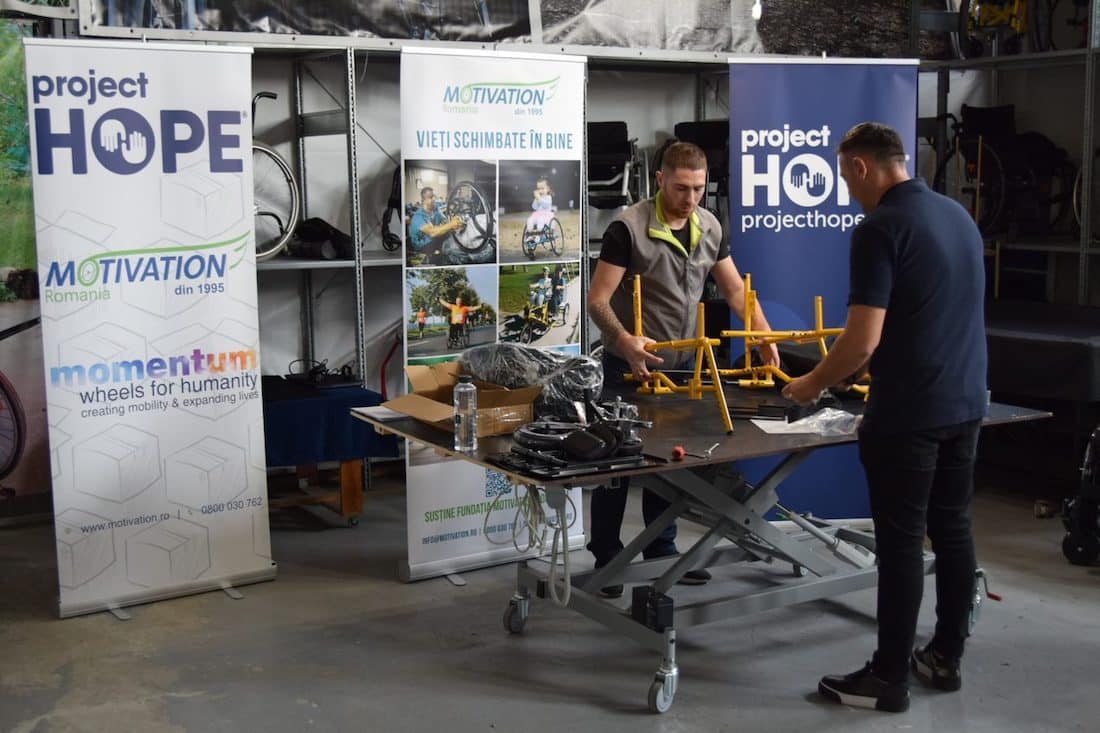
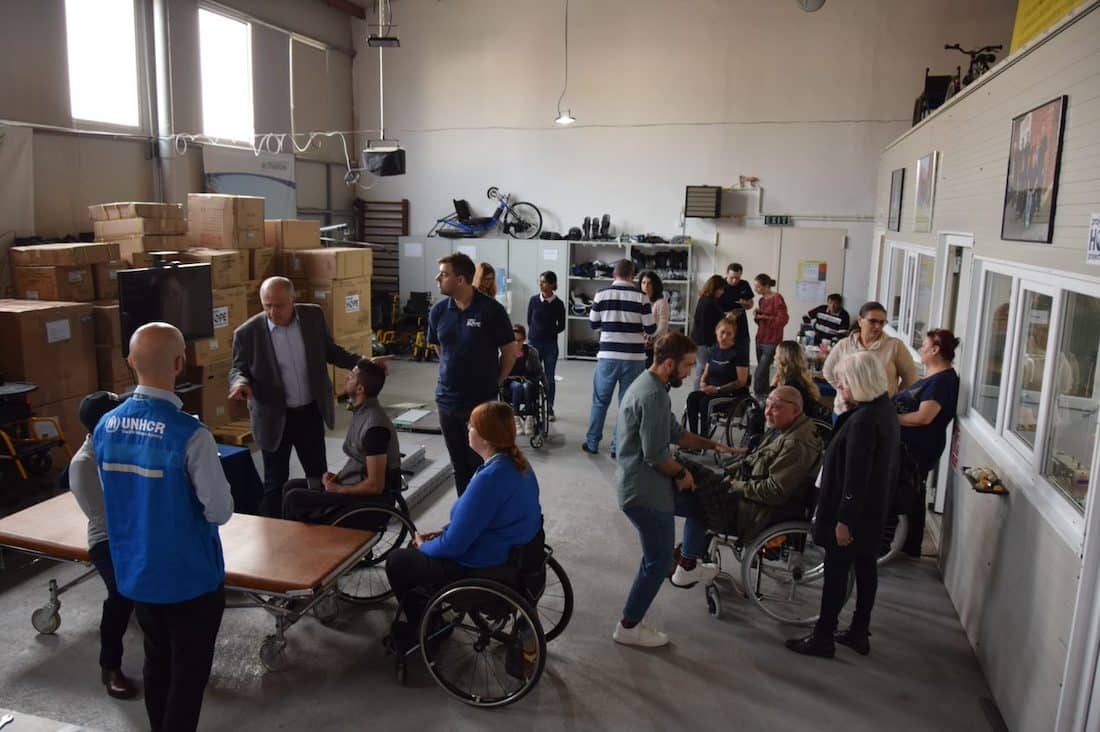
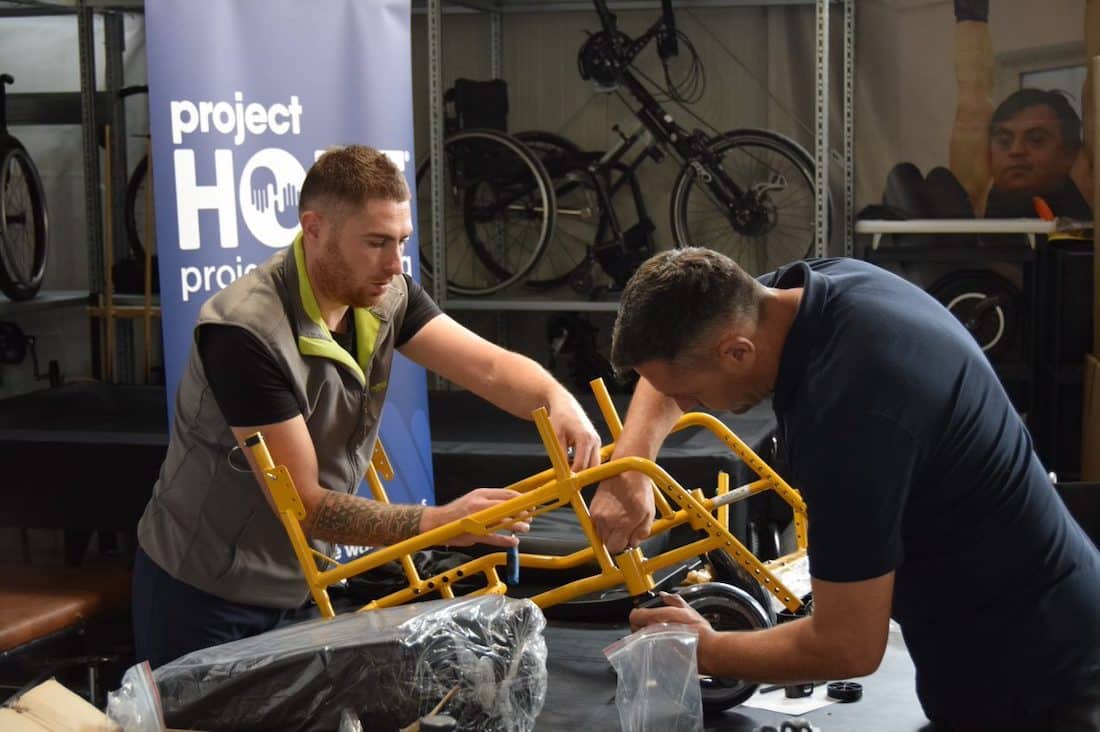
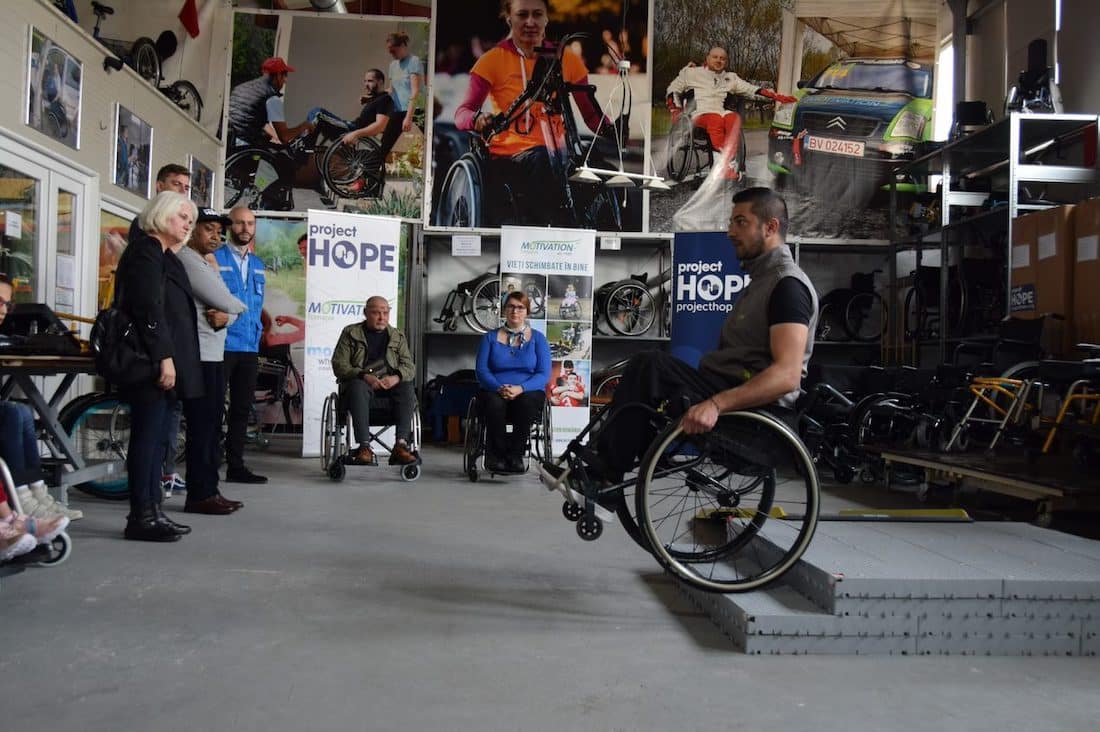
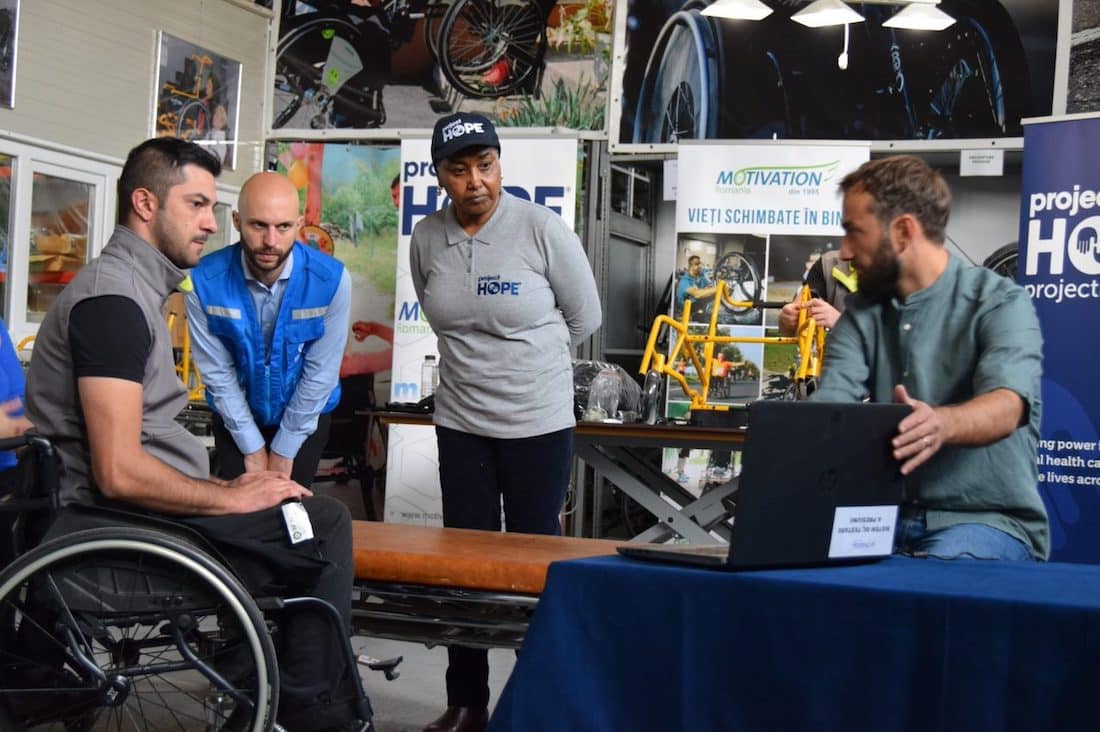





Project HOPE, in collaboration with Momentum Wheels for Humanity, has donated more than 300 wheelchairs and mobility equipment to Motivation Romania to distribute to beneficiaries from Ukraine and Romania. At a recent handover event, which was also attended by staff from Motivation Romania and UNHCR, three children and an adult received wheelchairs that were adapted to meet their specific needs.
“The generous donation made by Project HOPE and Momentum Wheels for Humanity contributes to our goal of securing resources to meet the diverse individual needs of persons with mobility disabilities identified by our regional teams,” said Cristian Ispas, General Manager of Motivation Romania Foundation.
Mobility equipment, namely wheelchairs for adults and children and walking frames, will be assembled and prepared for delivery in the Motivation workshop, with some going to Ukraine for distribution inside Ukraine. All wheelchairs are expected to be donated between October 2022 and October 2023, based on individual assessments made by the Motivation professionals from all over the country, according to the recommendations of the World Health Organization.
Project HOPE is operating four mobile medical units in Ukraine that have provided more than 12,000 medical consultations. We have also donated critically needed support items like minivans and generators and have completed multiple reconstruction projects in hospitals in Irpin and Bucha cities. In September, Project HOPE started rehabilitation works in four facilities, including Borodyanka municipality (kindergarten, municipal pharmacy, and hospital heating system) and a hospital in Zagalci village.
The Project HOPE team — in partnership with the local organization ‘’Infection Control in Ukraine’’ — has also provided personal legal consultations for the restoration of personal documents to the local population and IDPs across Ukraine.
Outside Ukraine, our work continues to support refugees in need across Moldova, Poland, and Romania. In Moldova, Project HOPE has established eight playrooms that have provided services to hundreds of Ukrainian refugee children. In Poland, Project HOPE provided a $425,000 grant to the local NGO Podkarpackie Stowarzyszenie dla Aktywnych Rodzin (PSAR) for the provision of mental health support to Ukrainian refugees, specifically women and children in Rzeszow. The Center for Psychophysical Development TUTU has provided mental health assistance to more than 2,200 Ukrainian Refugees and local residents.
The total number of verified civilian casualties of the war is now approaching 12,000. As of 17 July, the UN Human Rights Monitoring Mission in Ukraine (HRMMU) has corroborated 11,862 civilian casualties since 24 February: 5,110 killed (including 1,943 men, 1,342 women, 163 boys and 142 girls) and 6,752 injured (including 1,359 men, 1,001 women, 210 boys and 147 girls). More than half of the casualties (6,687) were recorded and corroborated in eastern Donetsk and Luhansk oblasts. Real totals are likely to be considerably higher, as the receipt of information from some locations has been delayed, and many reports are still pending confirmation.
Project HOPE continues to implement a highly coordinated, comprehensive humanitarian intervention in Ukraine and neighboring countries. In Ukraine, Project HOPE has engaged a local pharmaceutical company to provide key medicines free of charge to the Ministry of Health of Ukraine. We continue to operate four mobile medical units, trauma training courses, multiple reconstruction projects, and are now partnering with a local organization to provide legal consultations for the restoration of personal documents to the local population and IDPs across Ukraine.

As we near the six-month anniversary of Russia’s invasion of Ukraine, Project HOPE has prepared a report detailing the impact donors have had through the first four months of this crisis.
The three-page report, which is available here, includes impact numbers, photos, and information about all areas of our response, which stretches across Ukraine, Moldova, Poland, and Romania.
In the first four months of our response, Project HOPE has delivered $4.7 million in pharmaceuticals and medical commodities, along with more than 300 pallets of gravely needed medicines and medical supplies. We have supported 50 health facilities in Ukraine, distributed more than 20,000 hygiene kits, rehabilitated health facilities in four cities, and launched three mobile medical units. Outside the country, our refugee response has provided mental health support and direct patient care to thousands of Ukrainians in need.
In all areas of our response, Project HOPE has endeavored to promote the localization of aid through collaboration, partnership, and strengthening the capacity of local non-governmental organizations. This approach was essential to the delivery of aid during the earliest and most acute phase of the crisis and we remain committed to it as our response grows and evolves in order to support sustainable solutions and promote more resilient communities.
In the first four months of our response, Project HOPE has delivered more than 300 pallets of badly needed medicines and medical supplies inside Ukraine, including trauma supplies, insulin, needles, hygiene kits, and more. Outside the country, our multi-country refugee response is helping refugees access the care they need, including children and those needing mental health care.
To date, Project HOPE has…
- Supported 50 health facilities in Ukraine
- Delivered $4.7 million in pharmaceuticals and medical commodities
- Provided trauma care trainings for more than 1,200 health care workers in five health facilities
- Distributed more than 20,000 hygiene kits
- Delivered pharmaceuticals to 82 health facilities
- Delivered medical consumables to 78 health facilities
- Delivered surgical supplies to 19 health facilities
- Delivered generators to 13 health facilities
- Delivered medical equipment to 11 health facilities
- Partnered with 10 local organizations
- Rehabilitated health facilities in four cities
- Launched three mobile medical units
- Provided mental health support or services to more than 8,300 people
- Provided direct patient care to more than 2,300 refugees in Poland
- Provided emergency and ongoing medical services and medications to around 1,800 refugees on the Moldova border through a medical unit provided by SAMU
- Opened a mental health and psychosocial support center for refugees in Poland and two refugee child playrooms in Moldova
- Opened four in-country offices in Dnipro, Kyiv, Lviv, and Odessa
- Project HOPE was also awarded a 12-month program by USAID’s Bureau for Humanitarian Assistance, which will reach 1.25 million people and 24 health facilities over the next year.
Our work continues to evolve and expand based on the most urgent needs in the region.
The lastest deliveries include:
- A Neurosurgical Microscope (worth $115,000) to the Multidisciplinary Hospital № 18 in Kharkiv.
- Medicines, medical supplies, insulin, needles, hygiene kits, emergency health kits, surgical kits, and children kits
- 22 pallets of sutures to Lviv Children’s Hospital.
- An additional pallet that included 3,000 packets of cancer medication delivered to Kharkiv Hospital
Project HOPE’s teams in Ukraine, Poland, Romania, and Moldova continue to closely monitor the situation as it unfolds in order to adapt their response accordingly.
Project HOPE continues to implement a highly coordinated, comprehensive humanitarian intervention in Ukraine and neighboring countries. Project HOPE has delivered over 200 pallets of medicines and medical supplies, including insulin, needles, hygiene kits, and more to Lviv for onward distribution.The team has engaged a local pharmaceutical company to provide key medicines free of charge to Ukraine’s Ministry of Health and is also ready to conduct an initial distribution of 20 generators to various hospitals around the country that expressed needs.
As the conflict in Ukraine continues, Project HOPE’s medical team is providing training for health care workers to improve orthopedic management of ballistic fractures in Lviv. The team is working on expanding its training to include trauma injury training across Ukraine.
Project HOPE has completed multiple reconstruction projects in hospitals in Irpin and Bucha and is continuing to expand these activities to several facilities in Borodyanka municipality, including a kindergarten, municipal pharmacy, and a hospital heating system. We are also working to rehabilitate a hospital in Zagalci village, a clinic in Dmitrovka village and a psychoneurological hospital in Chernigiv city. We are also working to distribute generators to various hospitals around the country.
In Ukraine, Project HOPE is launching three mobile medical units to provide primary health care in the Dnipro and Zaporija areas. The team has also engaged a local pharmaceutical company to provide key medicines free of charge to Ukraine’s Ministry of Health. The Medical Team continues to provide training for “Orthopedic Management of Ballistic Fractures” in Lviv Hospital and is working on expanding its training to include trauma injury training across Ukraine.
Project HOPE has completed multiple reconstruction projects in Irpin and Bucha, and is now expanding these activities to several facilities in Bordyanka municipality and Zagalci village.
Project HOPE’s emergency programming in Ukraine continues to focus on supporting local primary and secondary health facilities through essential medical equipment and supplies. Our refugee response in Moldova, Poland, and Romania has identified local partners to target gaps in essential services, including primary health, mental health, and protection.
Project HOPE has created four humanitarian hubs in Ukraine (Kyiv, Lviv, Dnipro, and Odessa) with dedicated warehouses and full teams. We have begun rehabilitation of a hospital in Irpin and a kindergarten in Zagalci and have completed the rehabilitation of a hospital in Bucha.
Our mental health work continues to expand. In Moldova, we are working with two local NGOs to launch a mental health response in central Moldova and in border towns and villages. In Poland, meanwhile, we have provided a grant to Podkarpackie Stowarzyszenie dla Aktywnych Rodzin (PSAR) for the provision of mental health support to Ukrainian refugees.
As of May 5, 7.7 million Ukrainians have now been internally displaced by fighting and another 5.7 million have been forced to flee their country entirely. Together, the two figures comprise almost one-third of Ukraine’s entire population.
Inside Ukraine, Project HOPE is now providing training to physicians in Lviv to manage orthopedic trauma caused by ballistics. We have now imported more than 200 pallets of medicine and medical supplies, including insulin, needles, hygiene kits, and more for distribution to hospitals in need. Our team has also begun rehabilitating a hospital in Irpin as well as a kindergarten in Zagalci.
Project HOPE continues to respond to the most pressing health needs inside Ukraine as well as across the broader region.
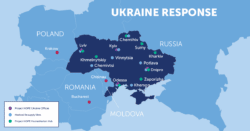
Project HOPE continues to scale up our response in Ukraine, with offices opening in Lviv, Kyiv, and Dnipro. As part of our response, we are beginning rehabilitation of a hospital in Irpin, in addition to identifying hospitals and schools for rehabilitation in the Kharkiv area.
This crisis continues to have serious impacts on surrounding countries. In countries such as Moldova, essential supplies (e.g., insulin) are becoming scarce or incredibly costly. Even in Poland, health facilities are struggling to meet an influx of communicable, chronic, and advanced health conditions. All bordering countries are struggling to find enough licensed professionals to provide essential mental health and psychosocial services (MHPSS), such as psychological first aid (PFA). Meanwhile, the arrival of highly vulnerable populations—especially women, children, and unaccompanied minors from Ukraine —poses severe protection risks, particularly for human trafficking and gender-based violence.
Project HOPE is working with two local NGOs in Moldova to launch a mental health response in central Moldova and in border towns and villages. In Poland, we are developing a partnership with a local organization providing key mental health services to refugees in Krakow. We are also supporting four local NGOs to provide mental health and primary health support to refugees, as well as hygiene needs. One of these NGOs has provided crisis intervention trainings for over 1,000 participants and is preparing a workshop in May for refugee mothers titled “How to Talk to Your Children about War.” Another partner is providing free consultations with a primary health care physician and a psychiatrist for refugees in the Bucharest area.
The conflict in Ukraine has now displaced 7.1 million Ukrainians to date. The most pressing needs among this population are cash and financial support, transportation, food, shelter, and hygiene items. Many are also in need of medicines and health services. The humanitarian conditions for those who remain in their homes are also severe: Over 1.4 million people are without running water in Eastern Ukraine and an additional 1.6 million across the country are in immediate risk of losing their access. Many others face significant protection, food, and health risks.
Project HOPE’s support to health facilities and IDPs in Ukraine continues to scale up in response to the overwhelming needs. We are establishing focus on three hubs of support in West Ukraine, East Ukraine, and the Kyiv area with potential expansion to Odessa and Kherson and other areas as security allows.
We have also imported more than 150 pallets of medicine and medical supplies to date, including Interagency Emergency Health Kits (IEHKs), Essential Health Packs (EHPs), Trauma and Emergency Surgery Kits (TESKs), first aid kits, prenatal supplements, hygiene kits, and infant kits. These supplies have been delivered to hospitals across Lviv, Kyiv, Cherkasy, Poltova and Kharkiv.
We are also establishing a trauma care training model to roll out to medical professionals on the front lines.
Project HOPE continues to scale up operations in Eastern Europe to respond to the ongoing humanitarian crisis. Our teams in Moldova, Poland, Romania, and Ukraine bring technical knowledge on health, mental health, protection, and other sectors with considerable field experience, and a strong relationship with local and international actors to forge a targeted and comprehensive response.
This week, more than 7,900 doses of insulin reached Project HOPE’s warehouse in Lviv and are now en route to Kharkiv. Project HOPE has imported more than 100 pallets of medicine and medical supplies to date, including Interagency Emergency Health Kits (IEHKs), Essential Health Packs (EHPs), Trauma and Emergency Surgery Kits (TESKs), first aid kits, prenatal supplements, hygiene kits, and infant kits. These supplies have been delivered to six hospitals across Lviv, Kyiv, Cherkasy, Poltova and Kharkiv.
In Moldova, Project HOPE has procured more than 300 wheelchairs to be distributed to a local organization serving Ukrainian refugees. We also continue to support SAMU’s Emergency Medical Teams (EMTs) to serve refugees crossing the Ukraine/Moldova border as per the request of the WHO and Moldovan Ministry of Health. The most prevalent diagnoses have included hypertension, upper respiratory infections, and acute mental health issues.
Project HOPE President and CEO Rabih Torbay is in Ukraine assessing the impacts of the war on the country’s health care system. On Wednesday, he joined CNN’s Victor Blackwell to discuss what he saw inside a trauma ward in Kyiv and how the conflict has impacted the country’s civilians.
>> You can read Rabih’s full reflections and see photos from his trip here.
Project HOPE is partnering with a non-governmental organization in Ukraine to purchase and transport pharmaceuticals and medical supplies across the country. This coming week, Project HOPE is transporting 100 pallets of pharmaceuticals and supplies, including insulin, needles, sutures, and gauzes into Lviv for onward distribution into the country. Our team on the ground is also conducting assessments of health facilities to determine needs and how Project HOPE and partners can best fulfill gaps.
In response to the ongoing crisis, Project HOPE has strategically placed teams in Ukraine and the three largest refugee recipient countries: Moldova, Poland, and Romania. Project HOPE is partnering with actors on the ground—including government officials, local relief organizations, and INGOs—to provide critical relief to conflict-affected populations on both sides of Ukraine’s borders.
In Ukraine, Project HOPE is importing 47 pallets of hygiene kits, vitamins, and medical supplies in Lviv for onward distribution. These items are expected in Ukraine early next and week will be delivered westward by Project HOPE’s partner in Ukraine.
Project HOPE continues to rapidly scale up activities in Ukraine, Poland, Moldova, and Romania, with team leads, medical coordinators, mental health specialists, and logisticians in place. We continue to procure and deliver medical supplies into Ukraine, as well as to support local NGOs in providing support to impacted populations.
In Ukraine, Project HOPE recently delivered five Interagency Emergency Health Kits to Lviv, which are now headed for onward distribution eastward. These medicines and medical supplies will support tens of thousands of Ukrainians over the coming months.
Project HOPE’s dual approach to the impact of the conflict has focused on providing support inside Ukraine through medical resupply as well as mental health and protection initiatives, as well as support to the refugee populations in Moldova, Poland, and Romania.
In Poland, we’re working with Krakow Children’s Hospital to supply a new ward for Ukrainian children, including the procurement of pharmaceuticals, medical supplies, and more. The surge of additional patients to the hospitals has necessitated additional space and personnel to serve the Ukrainian population, and Project HOPE has had an extensive, multi-decade relationship with Krakow Children’s Hospital.
Project HOPE continues to expand our partnerships and activities across the region, including working with Estuar Foundation in Romania to provide mental health training to health professionals and providing mental health consultations to Ukrainian refugees in Romania.
Project HOPE continues to scale up our response in Moldova, Poland, Romania, and Ukraine as the violence continues and the number of refugees increases. In the last few days, Project HOPE successfully moved shipments from Poland into Ukraine and is anticipating a shipment from Moldova to be transported into Odessa this week.
We’re working with government officials in Romania to import medicines, medical supplies, and other humanitarian goods into Ukraine, and exploring multiple supply routes to get these supplies to where they need to go.
We’ve provided grants to a number of small NGOs supporting refugees in Romania and anticipate releasing more funds to NGOs in Poland this week, including for mental health and psychological first aid support. Additionally, our team in Ukraine is exploring the expansion of programming from medical resupply into psychosocial, protection, and water, sanitation, and hygiene support.
In Moldova, Project HOPE’s support is helping provide health care and screenings for Ukrainian refugees who have just crossed the border. Almost all refugees who are crossing are women or children, and these mobile clinics — which are staffed by SAMU, a Spanish NGO — are helping ensure that refugees have immediate health care support once they leave the country. Project HOPE has previously partnered with SAMU after emergencies like Hurricanes Eta and Iota in Honduras.
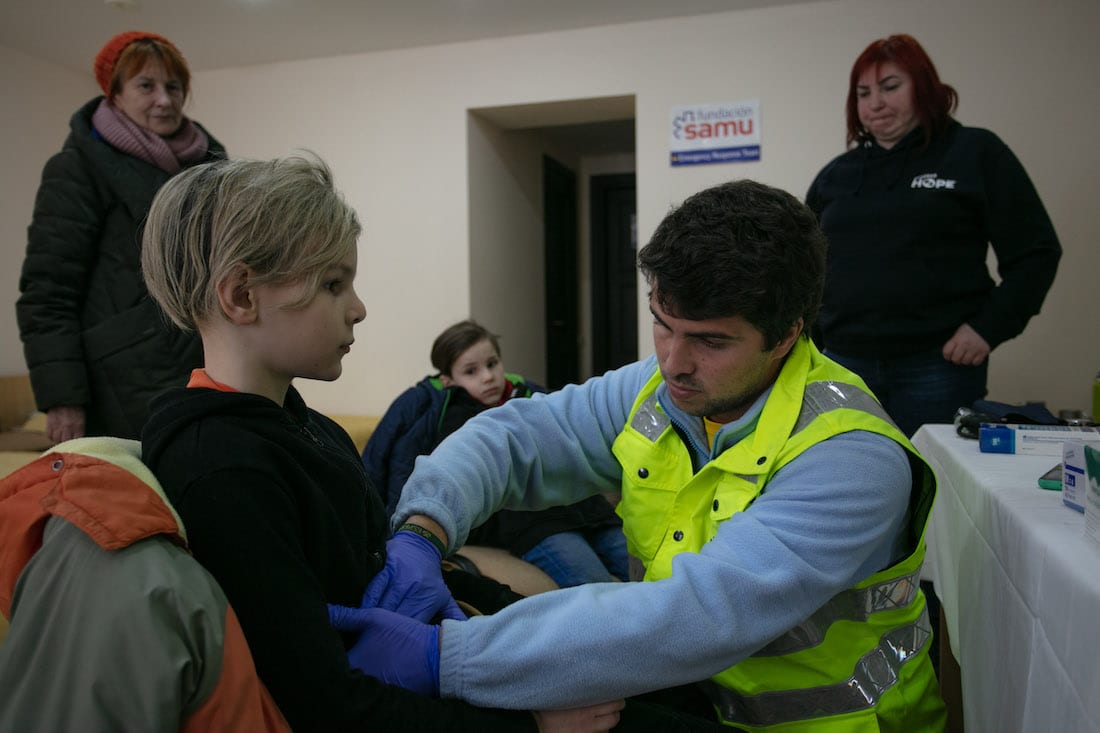
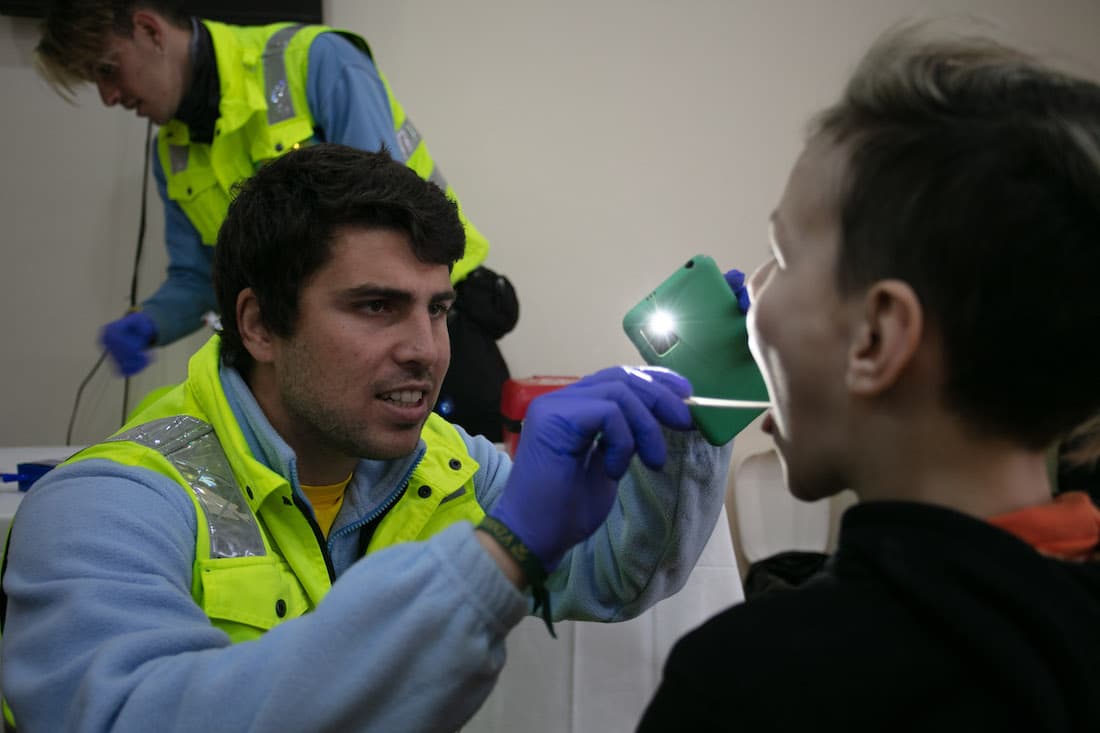
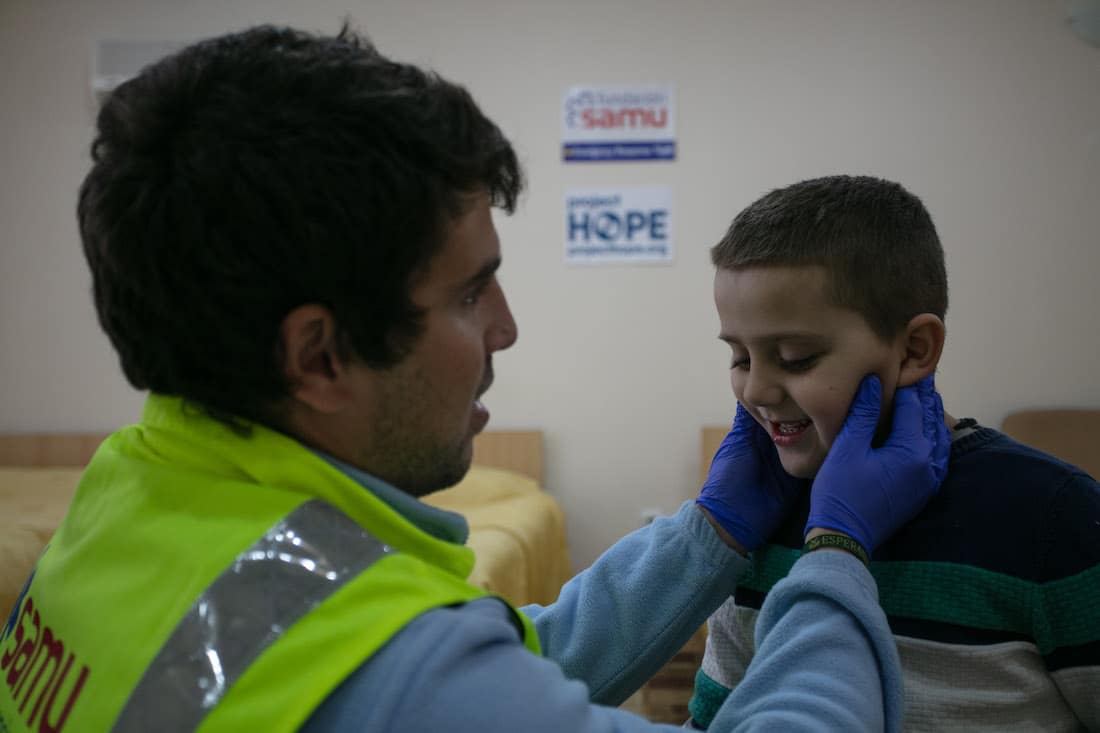
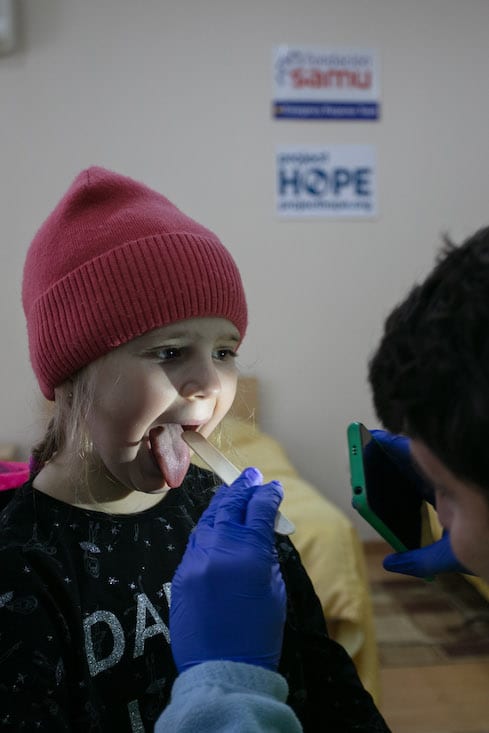
Project HOPE’s response to the Ukraine crisis continues to expand inside and around Ukraine, including the delivery of two Interagency Health Kits into Lviv, Ukraine today. These kits will provide enough primary health care medication to provide for 20,000 people over the next three months.
Project HOPE is also facilitating the transport of five pallets of anesthesia and injectables from Krakow into Lviv this week. Additional IEHKs will be transported into Ukraine next week, as well as International Health Partner UK’s Emergency Health Packs and other supplies.
To date, Project HOPE’s support has included the delivery of essential medicines, medical equipment, and consumables as well as hygiene kits and other non-food items like towels and bedding. Project HOPE’s teams are also working with partners and developing action plans to address health, mental health and psychosocial support (MHPSS), additional non-food items, protection, and water and hygiene needs in Ukraine and among refugees.
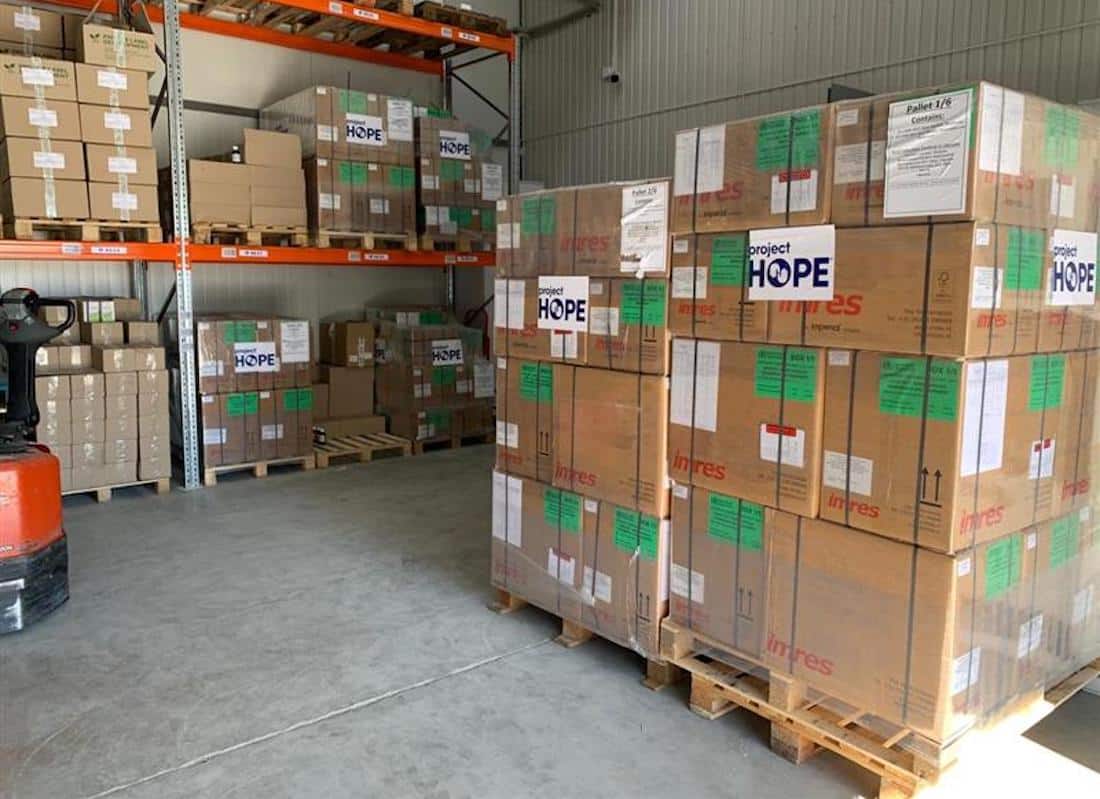
As airstrikes draw closer to the western city of Lviv, Project HOPE delivered a large shipment of antibiotics, surgical supplies, and other medical necessities to First Emergency Territorial Hospital in Lviv this morning.
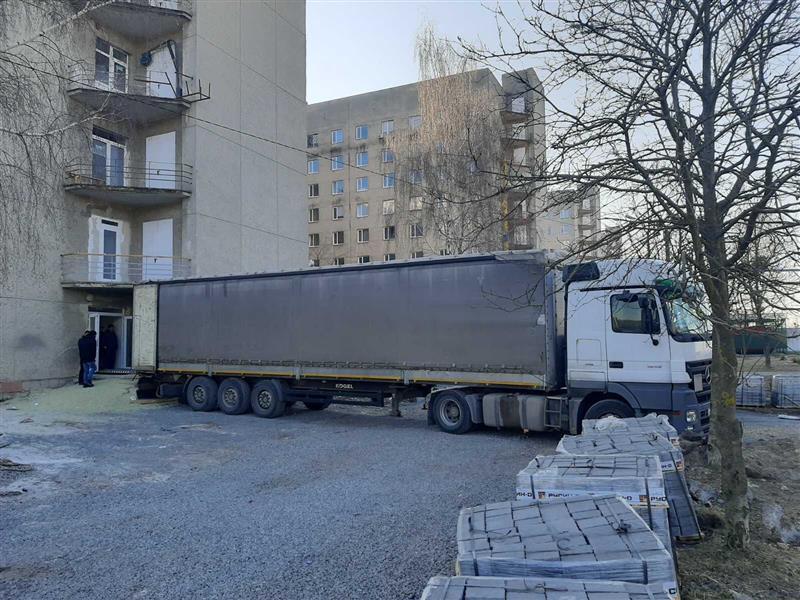
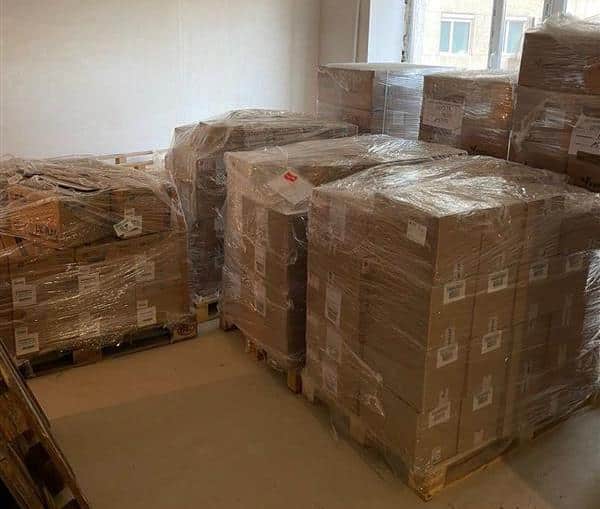
Project HOPE’s Emergency Response Team stayed at the hospital over the weekend and was also able to provide badly-needed medical supplies, including cardiac sutures that were used in a heart transplant at the hospital.
More relief for Ukraine is on the way: We are also mobilizing two Interagency Health Kits (IEHKs) to Ukraine, which are expected to arrive later this week, as well as two pallets of International Health Partner UK’s Emergency Health Packs, which are expected to arrive next week in Lviv. Project HOPE is also supporting a Ukrainian non-governmental organization so that they can purchase and transport pharmaceuticals and medical supplies to civilian hospitals throughout the country.
Project HOPE’s response continues to expand in Poland, Moldova, and Romania, including support for a mobile medical team that is treating refugee children crossing the Ukraine/Moldova border.
Read more about our response in our latest situation report here.
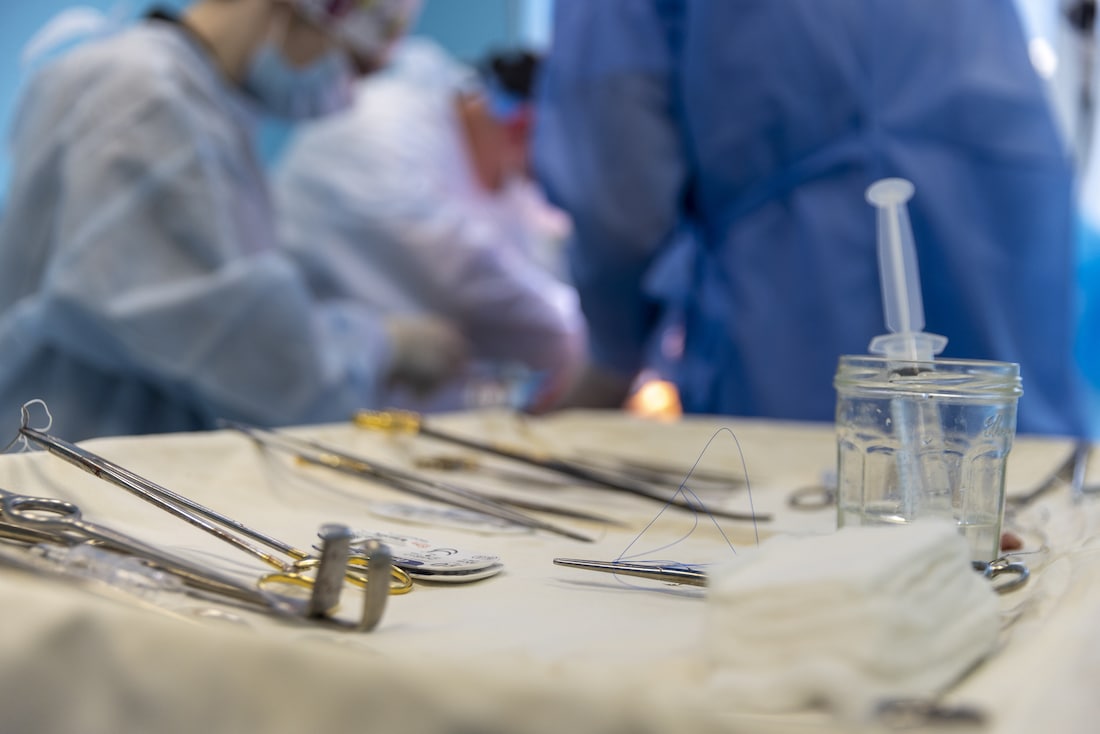
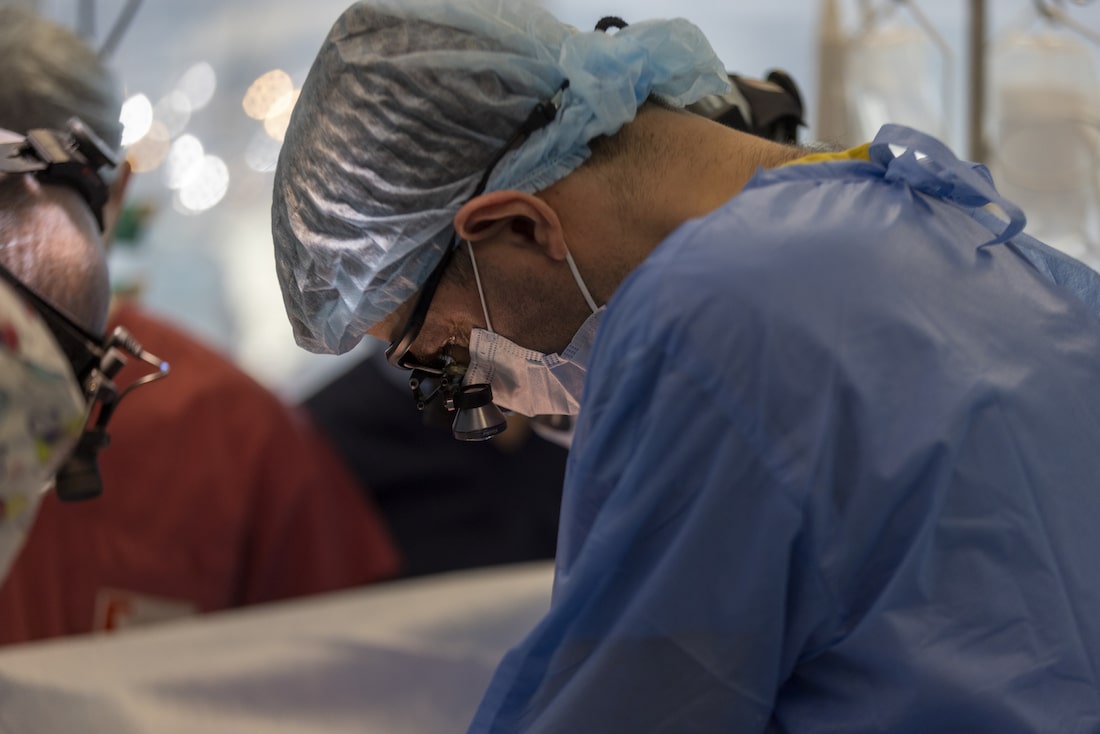

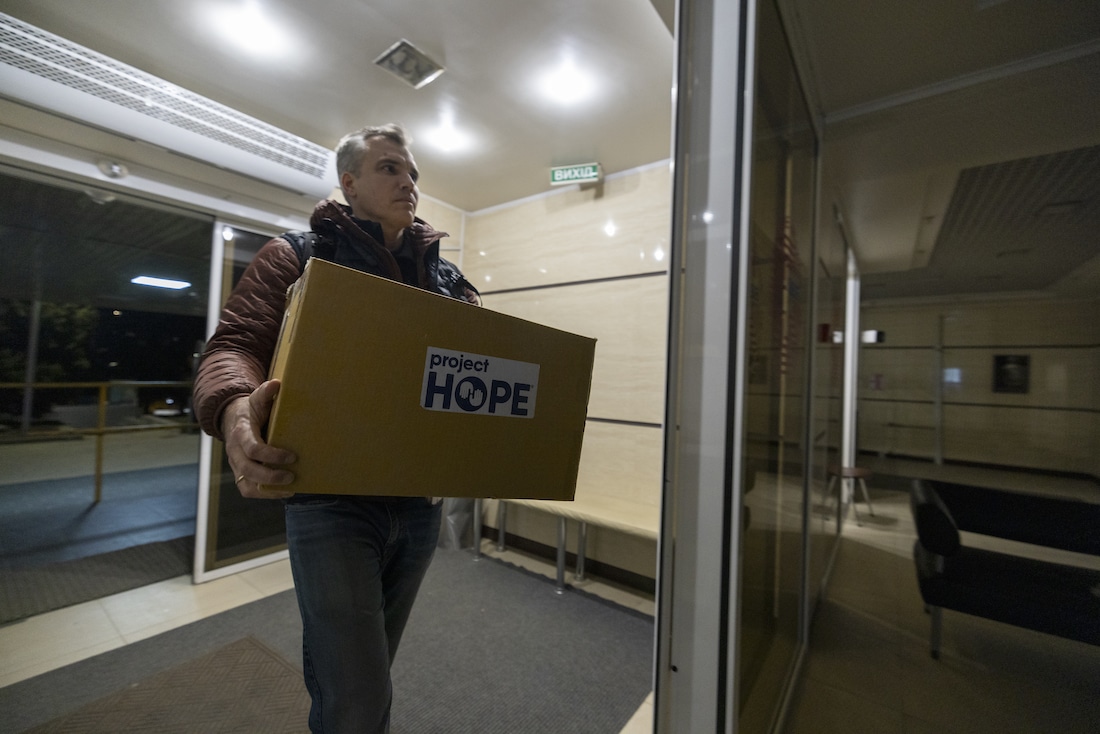
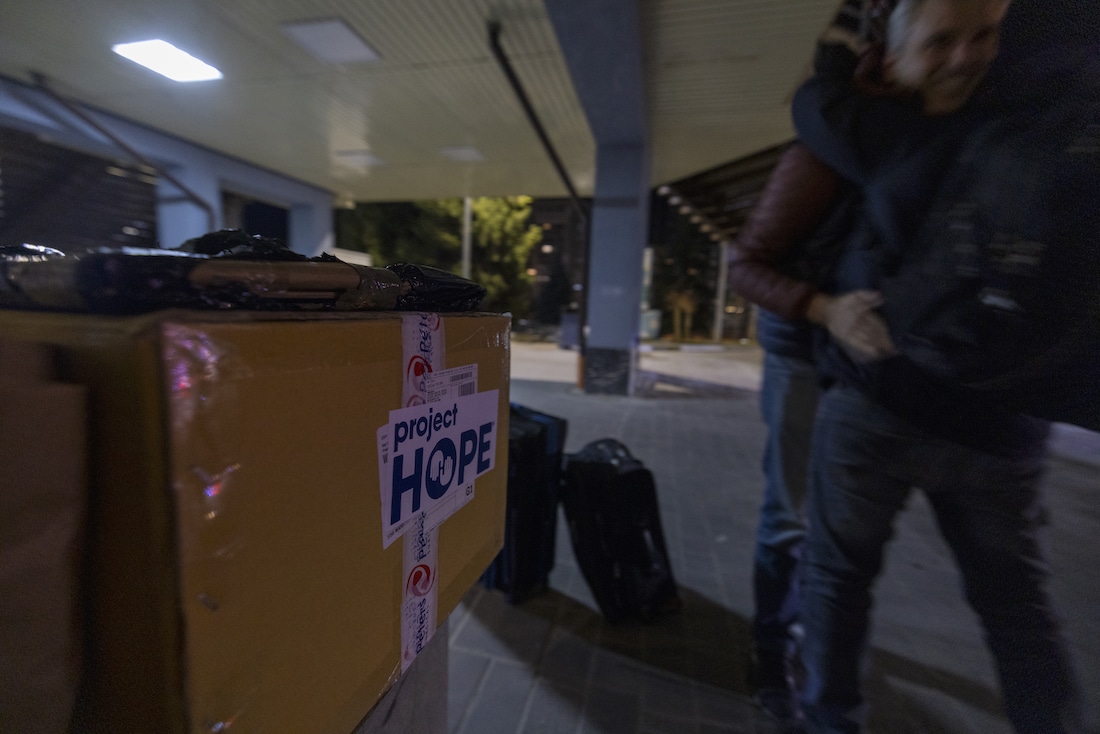





The number of people in need of urgent humanitarian assistance in Ukraine has quadrupled in just two weeks, with 12 million people now in need of lifesaving support. Our recent assessments in Ukraine indicate severe and worsening shortages of pharmaceuticals and medical supplies as infrastructure and supply routes are destroyed by Russian forces. Polish officials have told our team that 9 out of every 10 refugees crossing into Poland now have no contacts in the country, and three-fourths of them are from Eastern Ukraine.
Project HOPE is expanding our team in Lviv to increase our support inside the country, in addition to our teams on the ground in Moldova, Poland, and Romania. Our second shipment of medical supplies to Ukraine is expected to arrive at a children’s hospital in Lviv this week.
In Moldova, we are supporting a mobile medical team to serve refugees crossing the border at the request of the WHO and the Moldovan Ministry of Health. We’re also procuring and delivering key non-food items like blankets, bedding, and towels for refugees.
In Romania, Project HOPE is supporting local NGOs to provide mental health support to refugees, as well as hygiene and shelter needs. We’re also sourcing hygiene kits, medical supplies, and medicines for refugees as well as those inside Ukraine.
Project HOPE’s response to the Ukraine crisis continues to expand across the region, including a second shipment of medical supplies that is being delivered this week to a neonatal hospital in Kyiv. Meanwhile, Project HOPE is also expanding the capacity for a Ukranian non-governmental organization in Kyiv to purchase and transport medicines and medical supplies to civilian hospitals in the country. We continue to assess health needs across Ukraine, including in Lviv and Kyiv, and are working to establish transit routes to get medicines and medical supplies in.
In Moldova, Project HOPE is procuring and delivering key medical supplies to the Ministry of Health to serve refugees. These supplies include an Interagency Emergency Health Kit (IEHK), hygiene kits, and Non-Food Items (NFIs). Our team is also assessing needs and contingency planning for health facilities in Poland as refugee numbers increase demand on the Polish health system.
In Romania, Project HOPE is identifying local partners for Mental Health and Sexual Gender-Based Violence support for refugees. We are also sourcing hygiene kits, medical supplies, and medicines for transport into Ukraine as well as for the refugee population. Our team is also establishing a relationship with a key partner to send supplies into Odessa.
Project HOPE will continue to closely monitor the situation as it unfolds in order to respond to the most pressing health and humanitarian needs among affected populations.
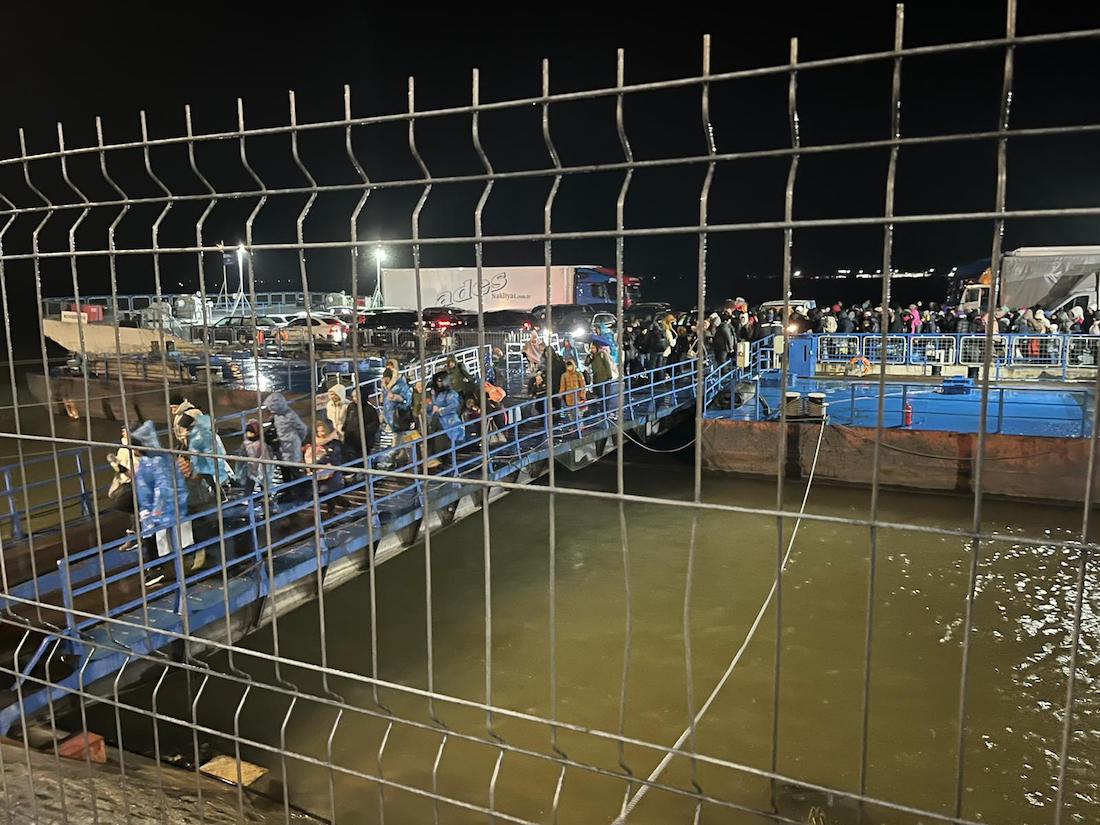
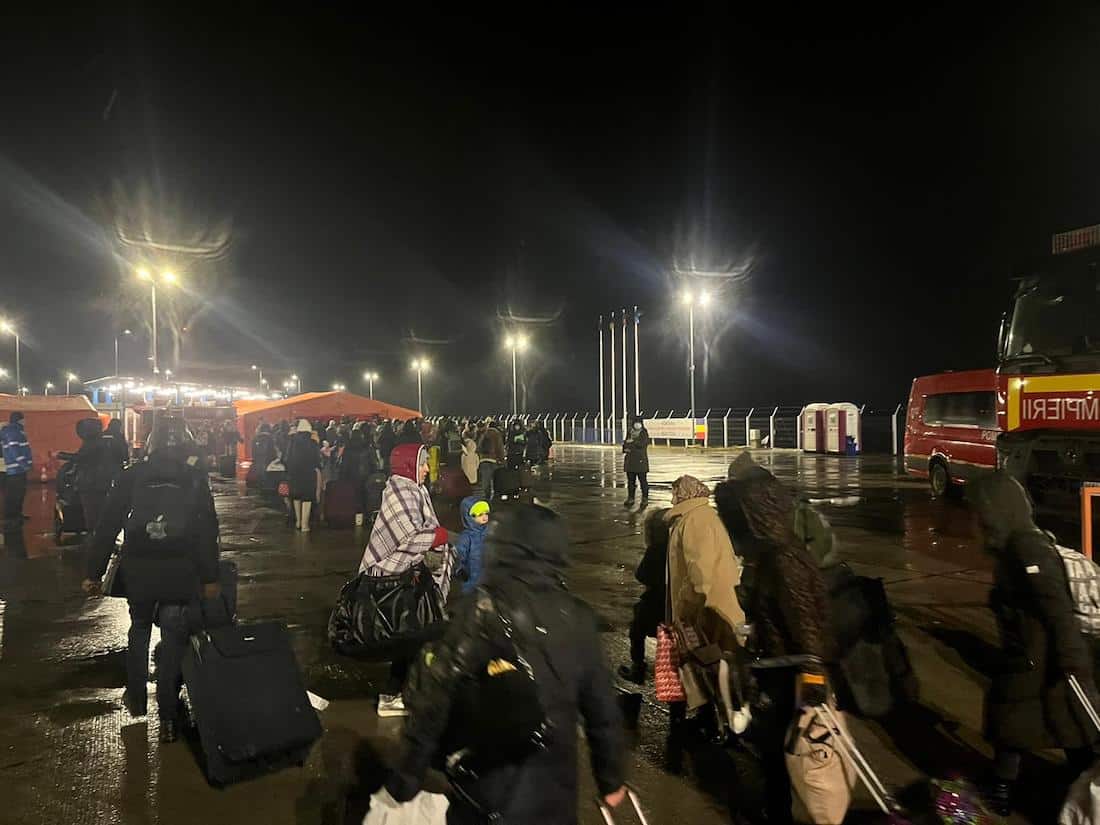
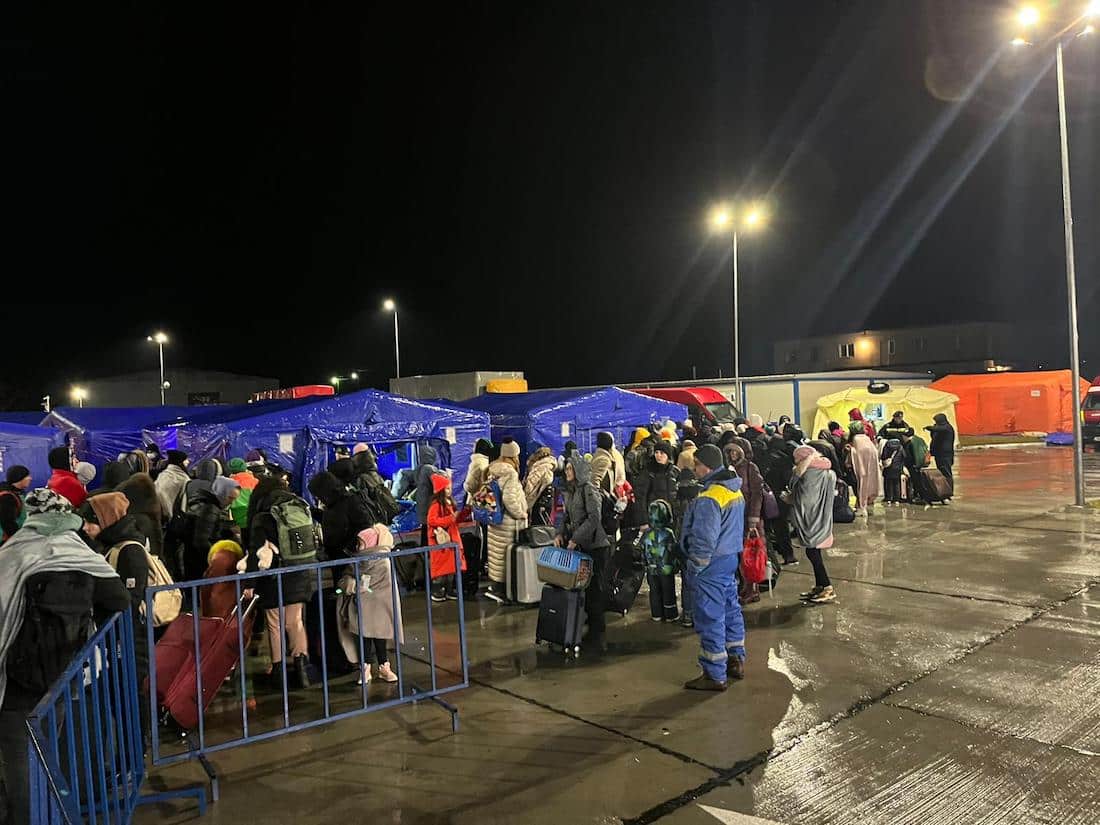
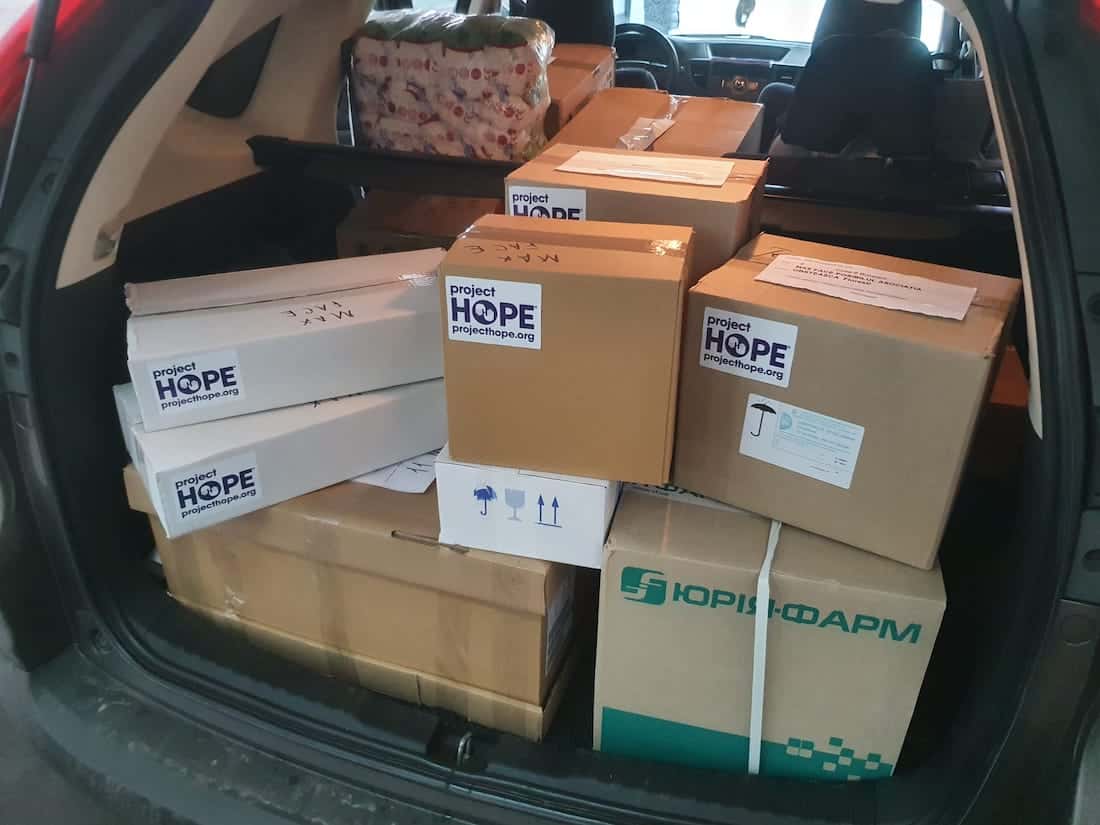
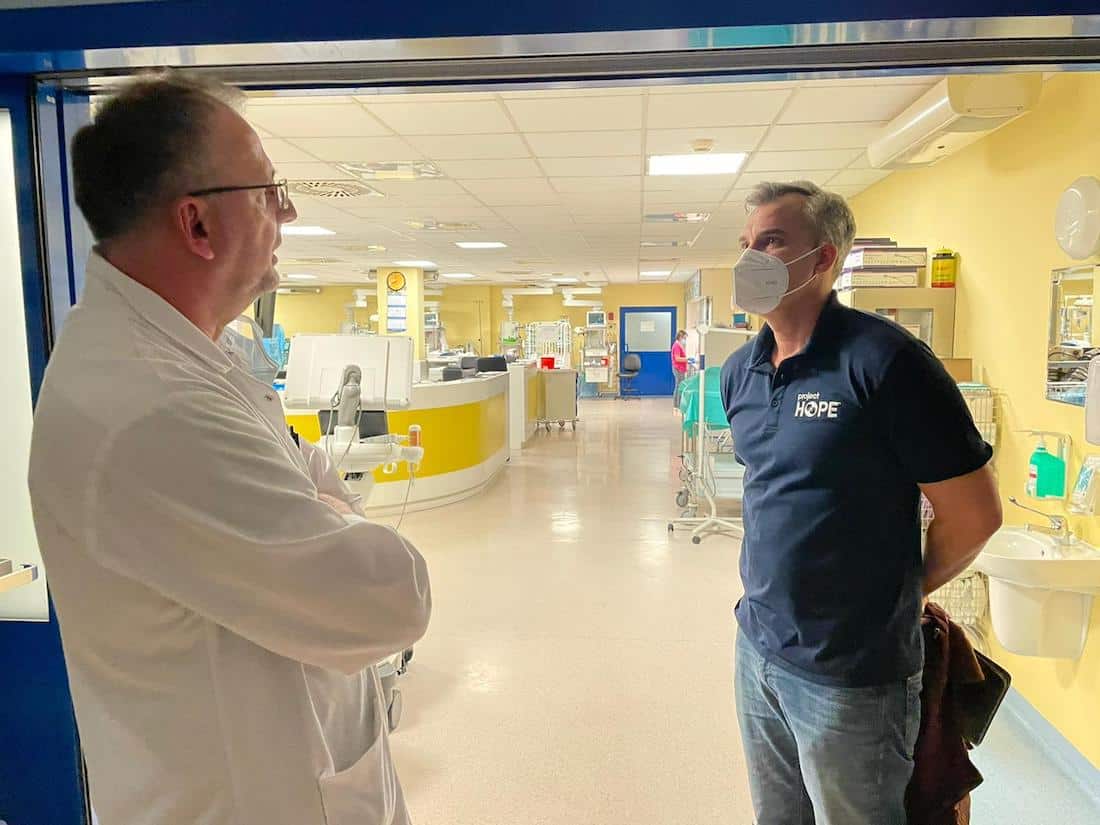





Project HOPE continues to coordinate with local NGOs, hospitals, and government officials across Poland, Romania, Moldova, and Ukraine, as well as the WHO Health and Logistics Clusters, Ministries of Health, and other authorities.
In Poland, Project HOPE is procuring key medical supplies to be delivered to a neonatal hospital in Kyiv through a local Polish partner. Project HOPE is supporting a non-governmental organization in Kyiv to purchase and transport medicines and medical supplies to civilian hospitals. We continue to assess health needs in the Dnipro region, including for those who are internally displaced.
In Moldova, Project HOPE is procuring and delivering key medical supplies to the Ministry of Health to serve refugees. This support includes an Interagency Emergency Health Kit that can support 10,000 people. In Romania, Project HOPE is sourcing hygiene kits, medical supplies, and medicines for transport into Ukraine as well as for the refugee population.
Project HOPE will continue to closely monitor the situation as it unfolds in order to respond to the most pressing health and humanitarian needs among affected populations.
As the number of Ukrainian refugees exceeds 1 million, Project HOPE emergency response teams remain on the ground in Poland, Romania, and Moldova to coordinate with local organizations in and around Ukraine to support Ukrainians during the ongoing crisis.
Our immediate focus is on continuing to source and ship essential medicines and medical supplies for primary health and trauma care to affected areas, including hygiene kits, Interagency Emergency Health Kits (IEHKs), insulin, and more.
“The people we are meeting in Poland — teachers, doctors, civil servants, and business owners — have had their entire lives upended by this invasion,” said Project HOPE’s Vlatko Uzevski. “These refugees have no idea when they will be able to return home or what home they will return to. Many of them only have the few belongings they were able to grab before fleeing. Within these waves of refugees are untold thousands who are pregnant, nursing, elderly, or managing serious medical conditions. The doctors and medicines they rely on are gone. There were already 3 million people in Ukraine in need of humanitarian assistance before this invasion. They are the ones who will bear the brunt of this war.”
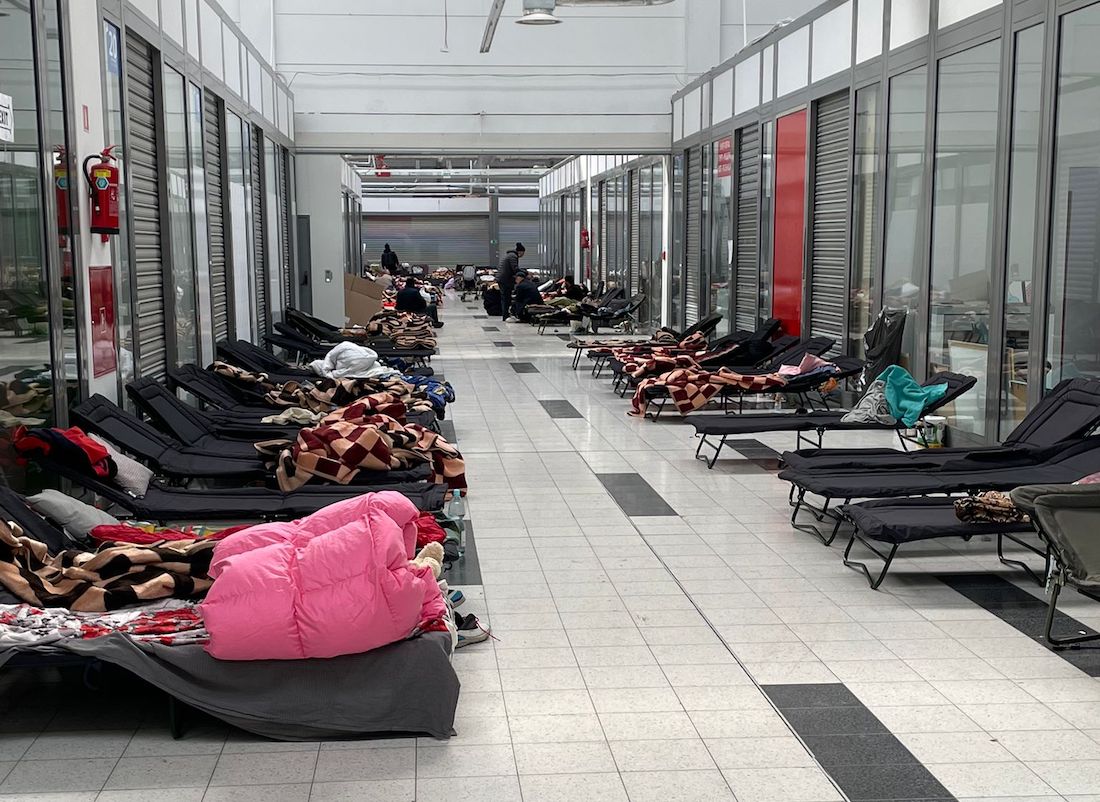
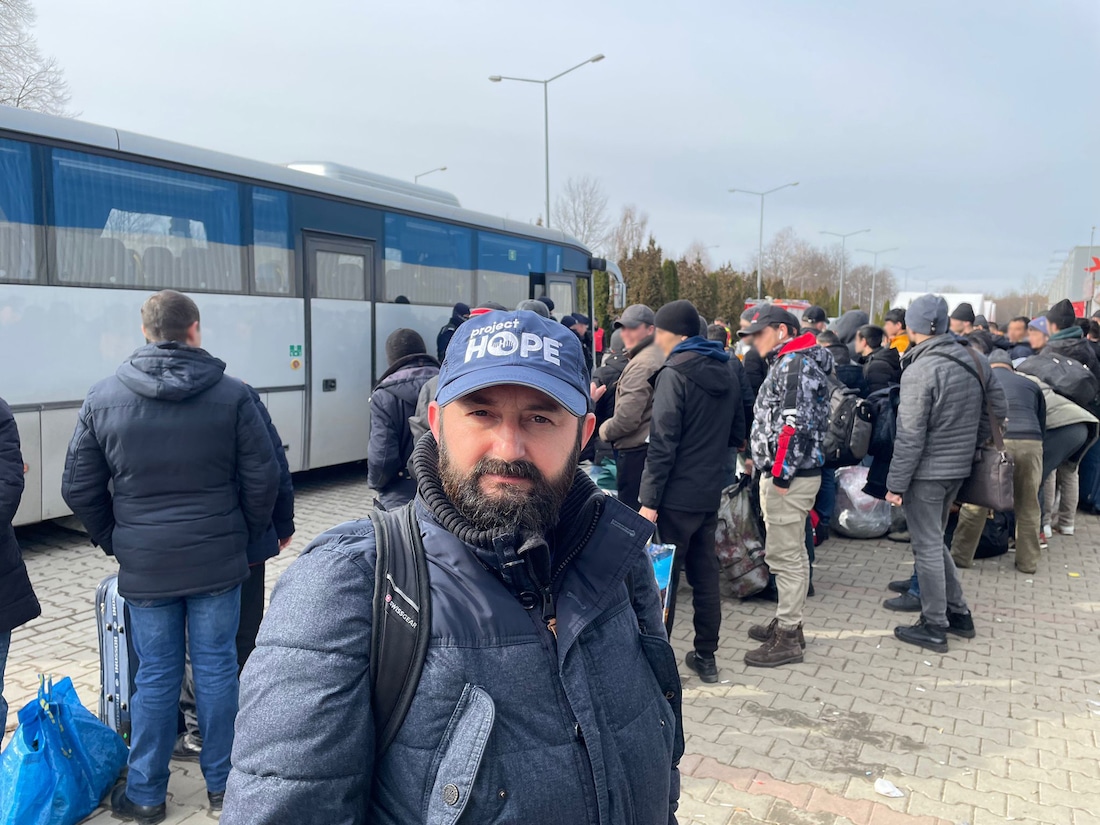
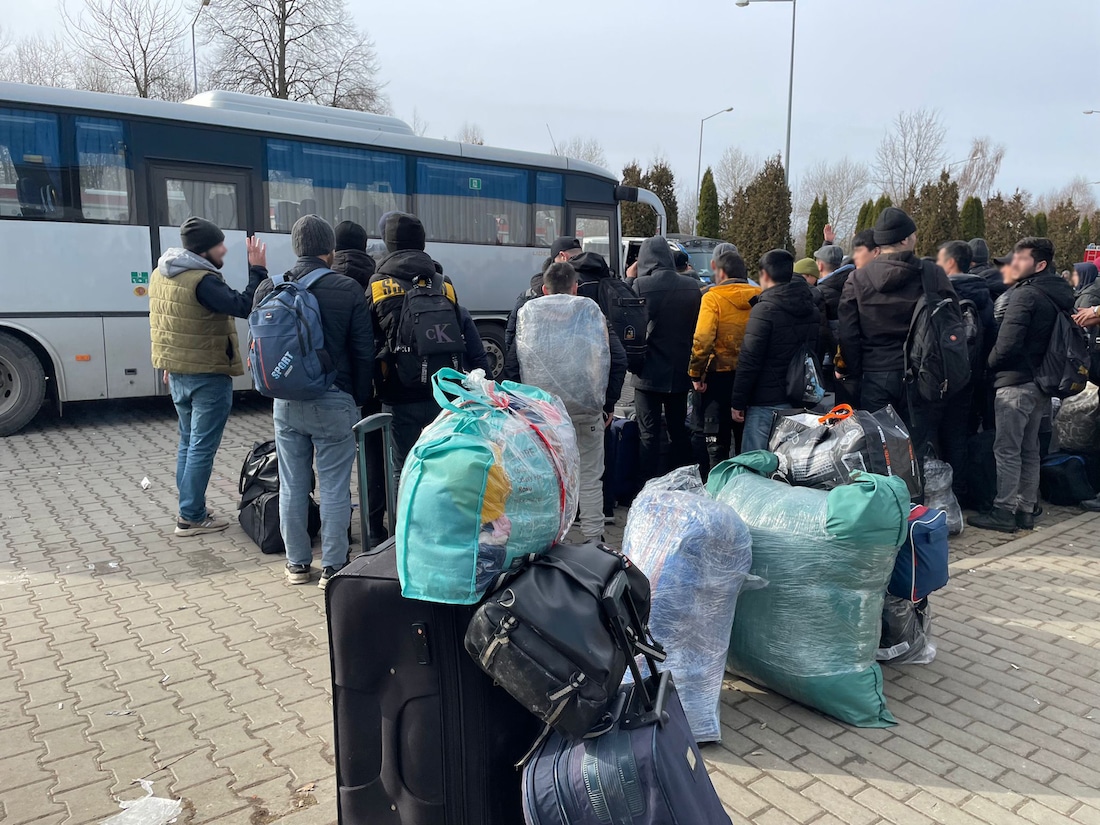
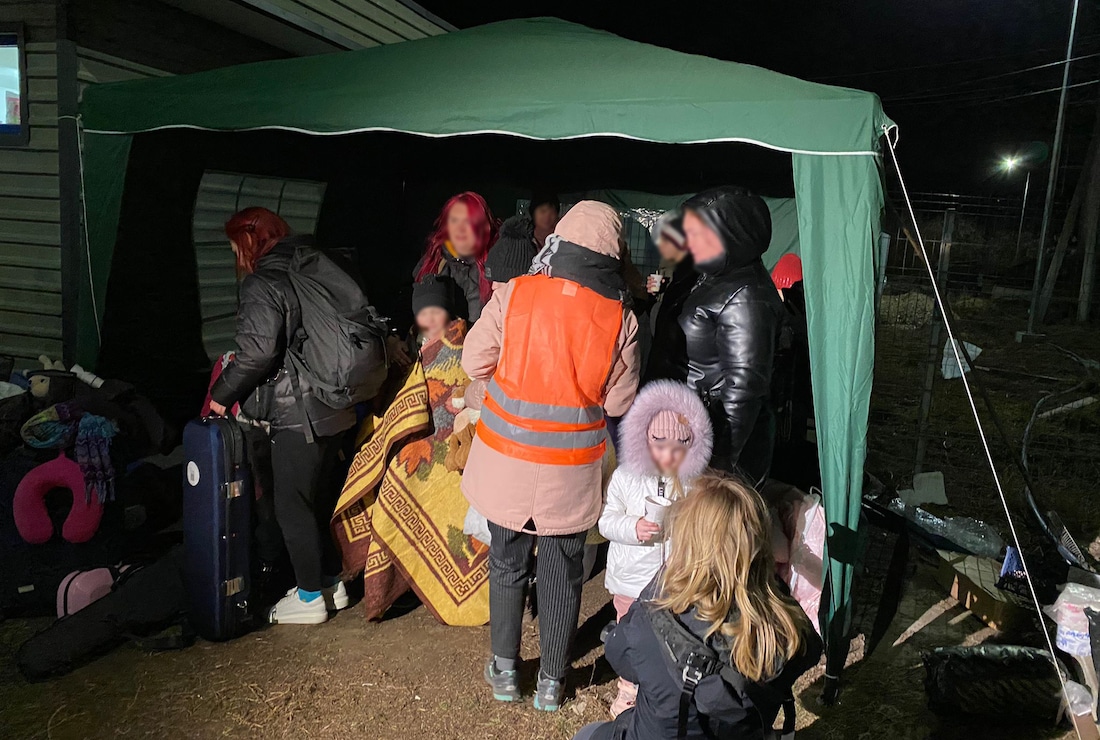
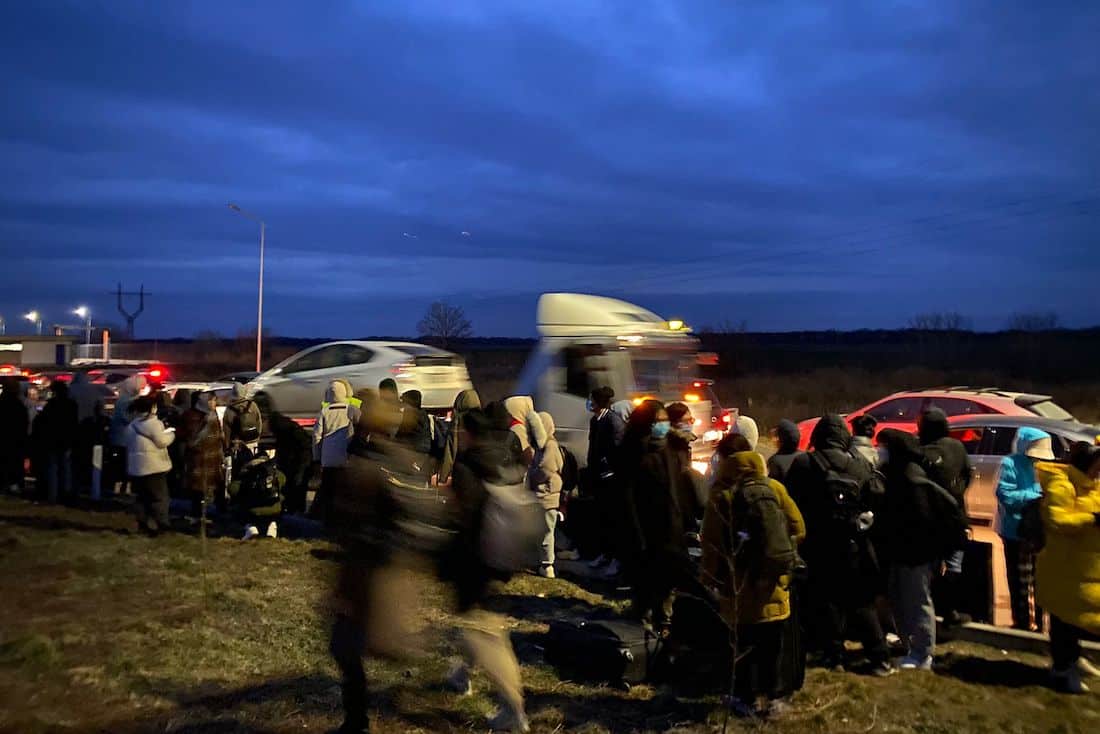





A heartwarming story from the ground in #Ukraine, shared by our Director of Emergency Response & Preparedness. These are the moments that remind us of the humanity we all share and must preserve. https://t.co/hTJGBoXmaf
— Project HOPE (@projecthopeorg) March 3, 2022
Project HOPE is working with the WHO Health Cluster and Logistics Cluster as well as the Ukrainian Ministry of Health and other authorities.
Our teams are focused on continuing to source and ship essential medicines and medical supplies for primary health and trauma care to affected areas, including hygiene kits, Interagency Emergency Health Kits (IEHKs), insulin, and more. We are also continuing to expand our presence within the region to provide immediate health and humanitarian relief.
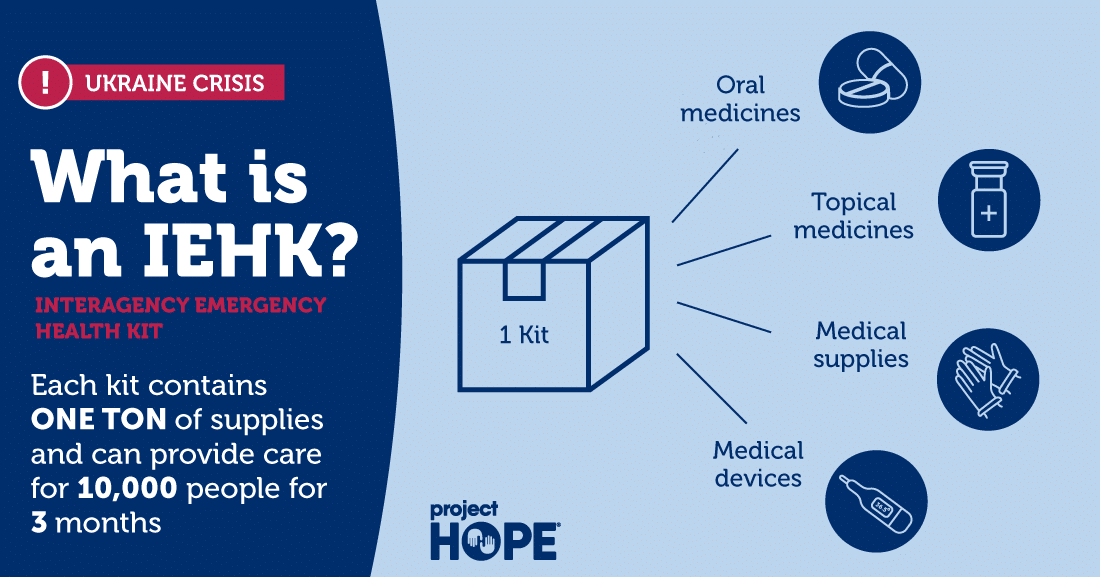
Some of the medicines included in the kit include amoxicillin, paracetamol, tetracycline, iodine, and oral rehydration salts. Each kit also includes medical supplies like tape, gauze, gloves, buckets, instrument trays, scissors, soap, surgical scrub brushes, and jerry cans.
IEHKs are critical tools to provide basic and primary health care in areas where there is no access to health facilities. The two kits that are included in Project HOPE’s initial shipment will be able to help meet the immediate medical needs of tens of thousands of people over the coming months.
Project HOPE’s initial response to the Ukraine crisis is focused on providing health and humanitarian assistance to Ukrainians, including refugees in neighboring countries fleeing the ongoing invasion. We are in contact with the WHO Health Cluster and other partners on the ground in Ukraine, who have already noted critical needs in primary health care.
- Project HOPE is actively shipping essential medicines and medical supplies to affected areas. We are currently readying an initial shipment of two tons of essential medicines and medical supplies to ship within the next 48 hours. These Interagency Emergency Health Kits (IEHKs) are designed to meet the initial primary health care needs of displaced populations in areas where there is no access to medical facilities. Initial medicines and equipment being shipped include oral medicines, topical medicines, medical supplies, and medical devices. These initial kits will provide enough medical supplies to care for tens of thousands of people over the coming months.
- Project HOPE is activating an emergency response team to provide immediate health and humanitarian relief. Additionally, we have medical teams on standby to provide health screenings and care for Ukrainian refugees and those inside the country who do not have the ability to flee to safety.
“What was a severe humanitarian crisis before has now become exponentially worse,” said Chris Skopec, Executive Vice President of Global Health at Project HOPE. “Today, the people of Ukraine face one of the greatest threats to their freedom and security since re-establishing statehood in 1991. Project HOPE stands by the people of Ukraine. We are actively providing medicines and medical supplies and have medical teams on standby to provide health screenings and care for Ukrainian refugees and for those inside Ukraine without the ways and means to flee to safety.”
Project HOPE will continue to closely monitor the situation as it unfolds in order to respond to the most pressing health and humanitarian needs among affected populations.